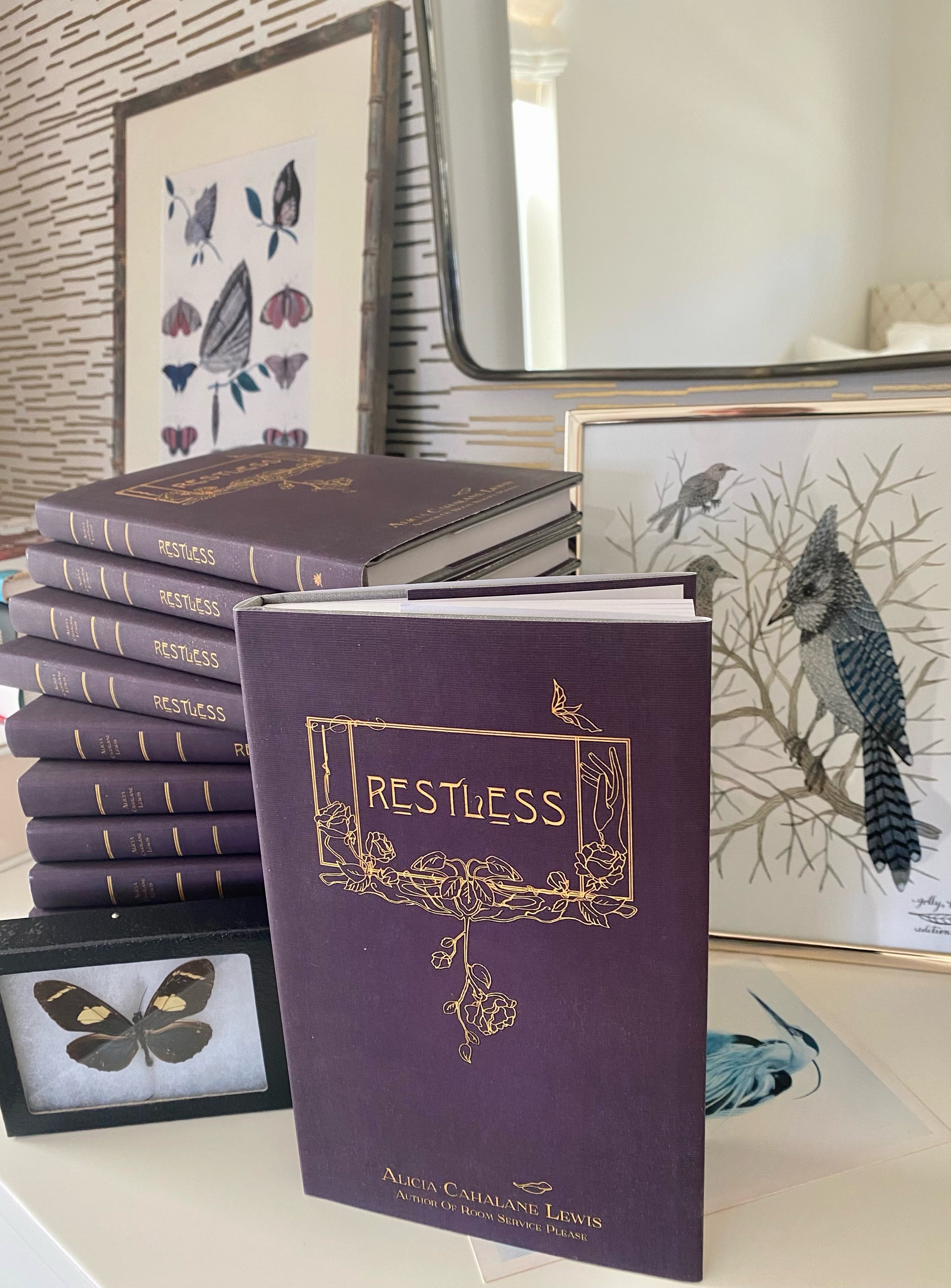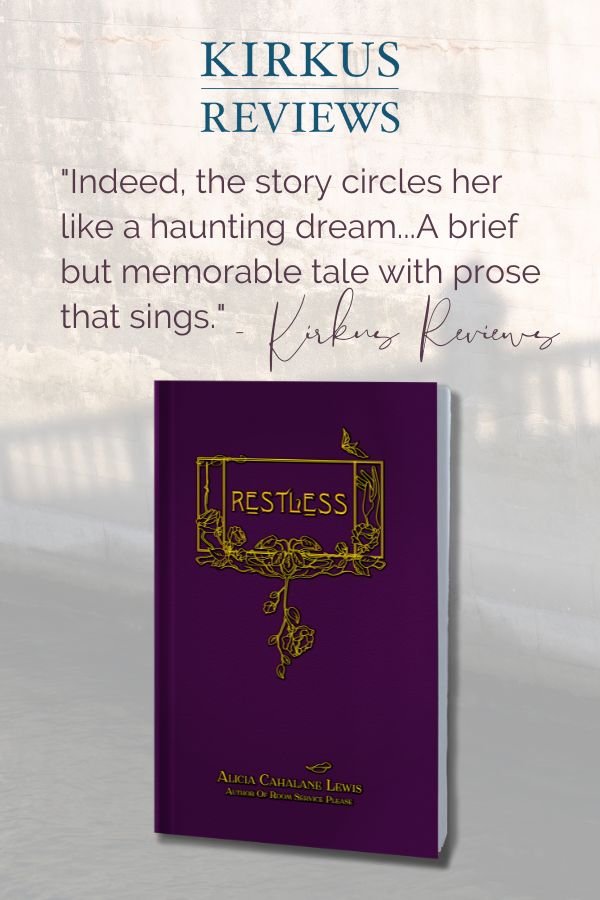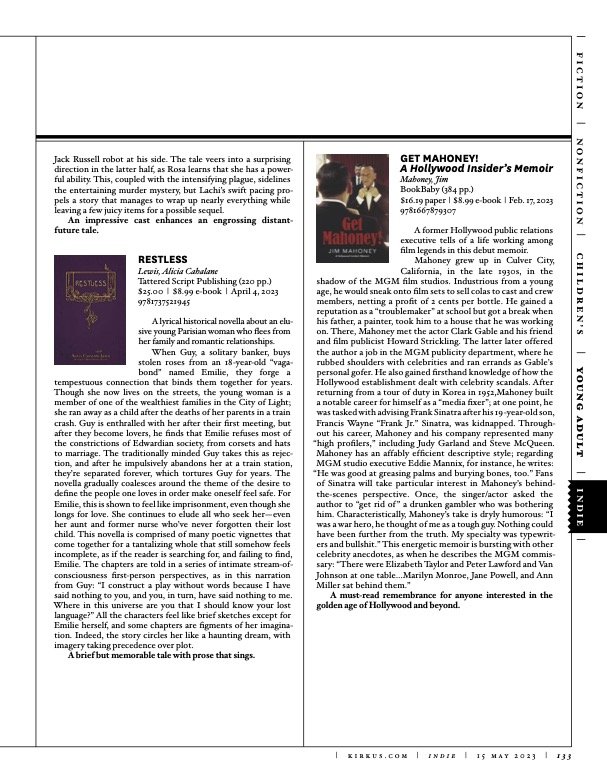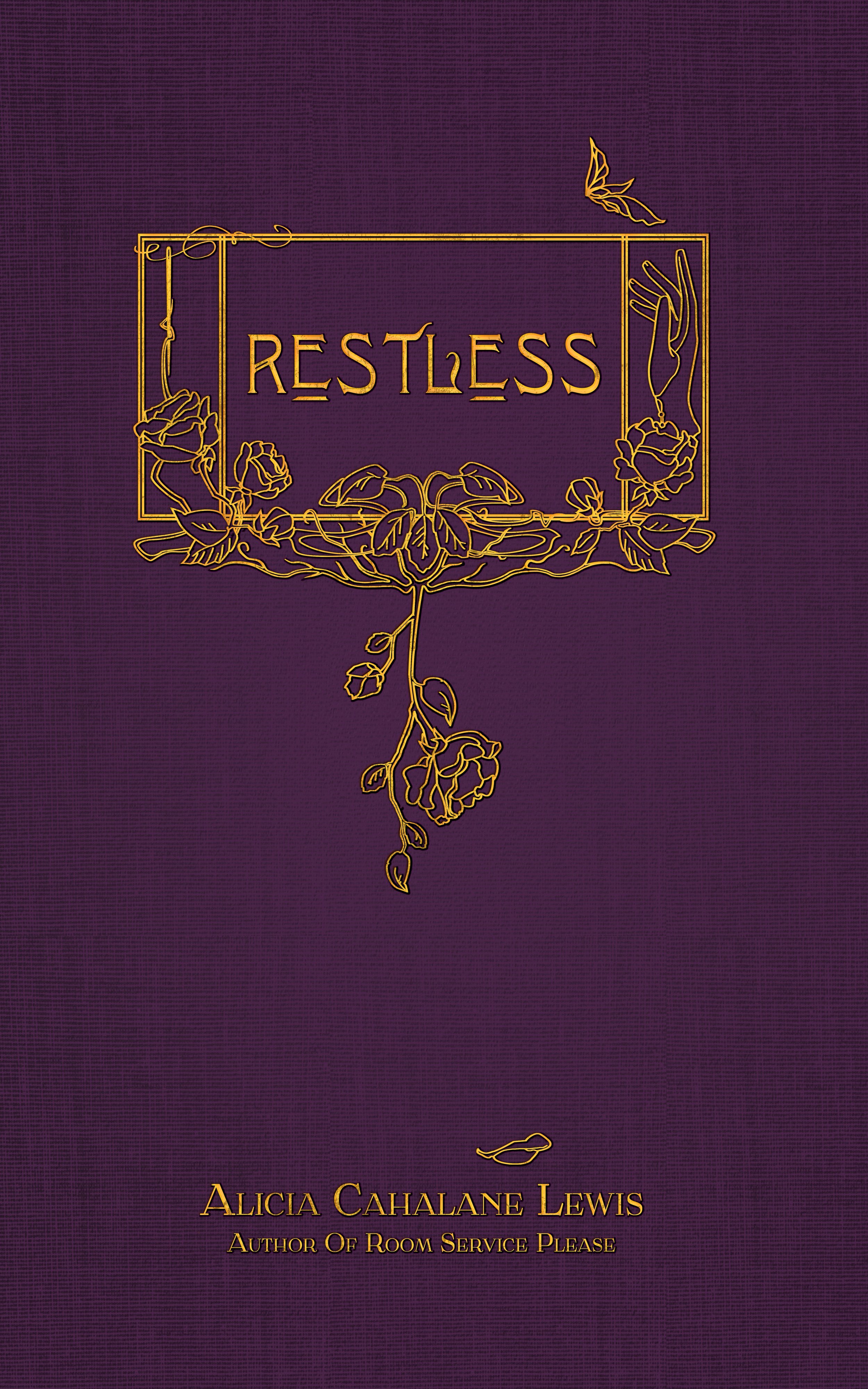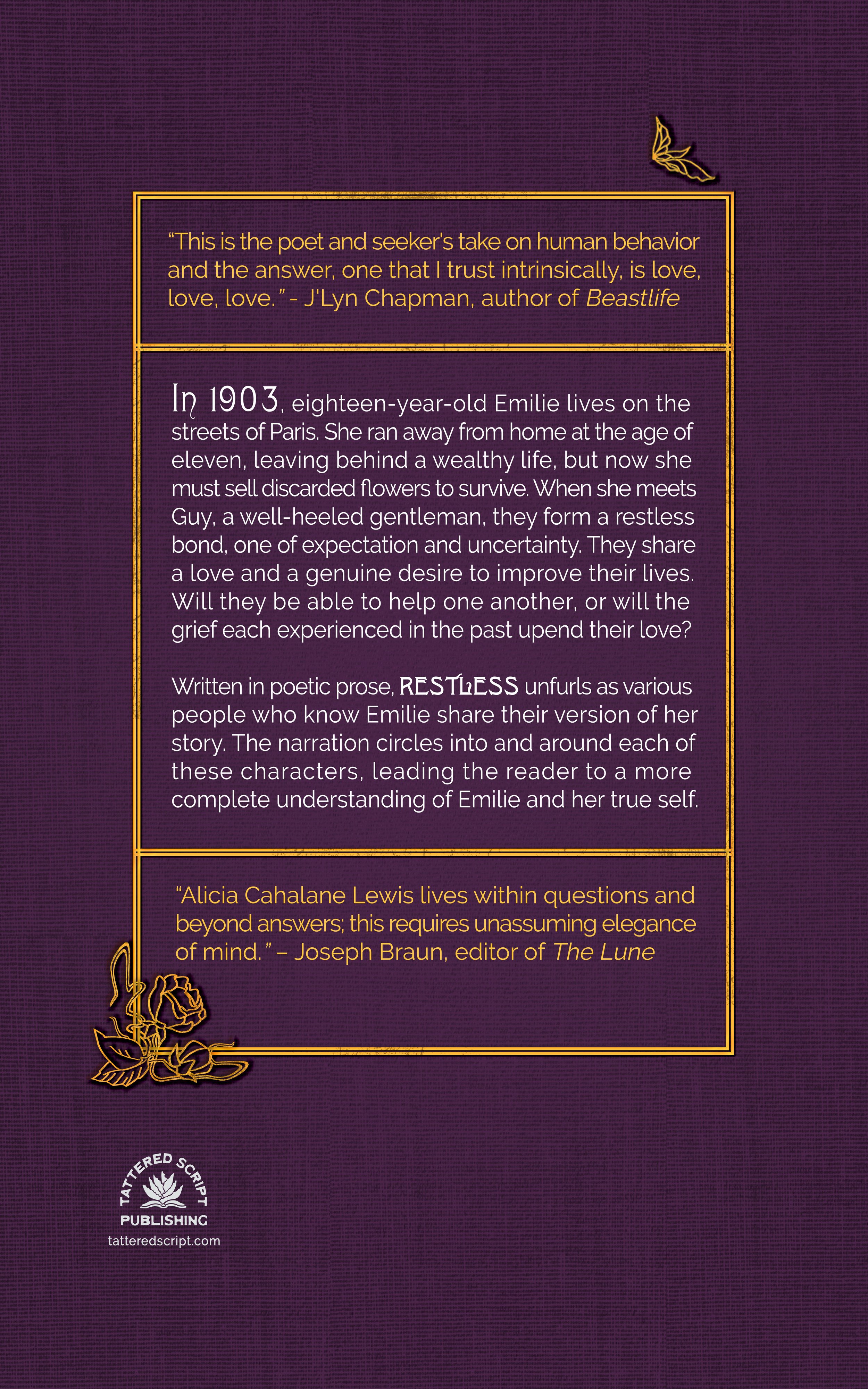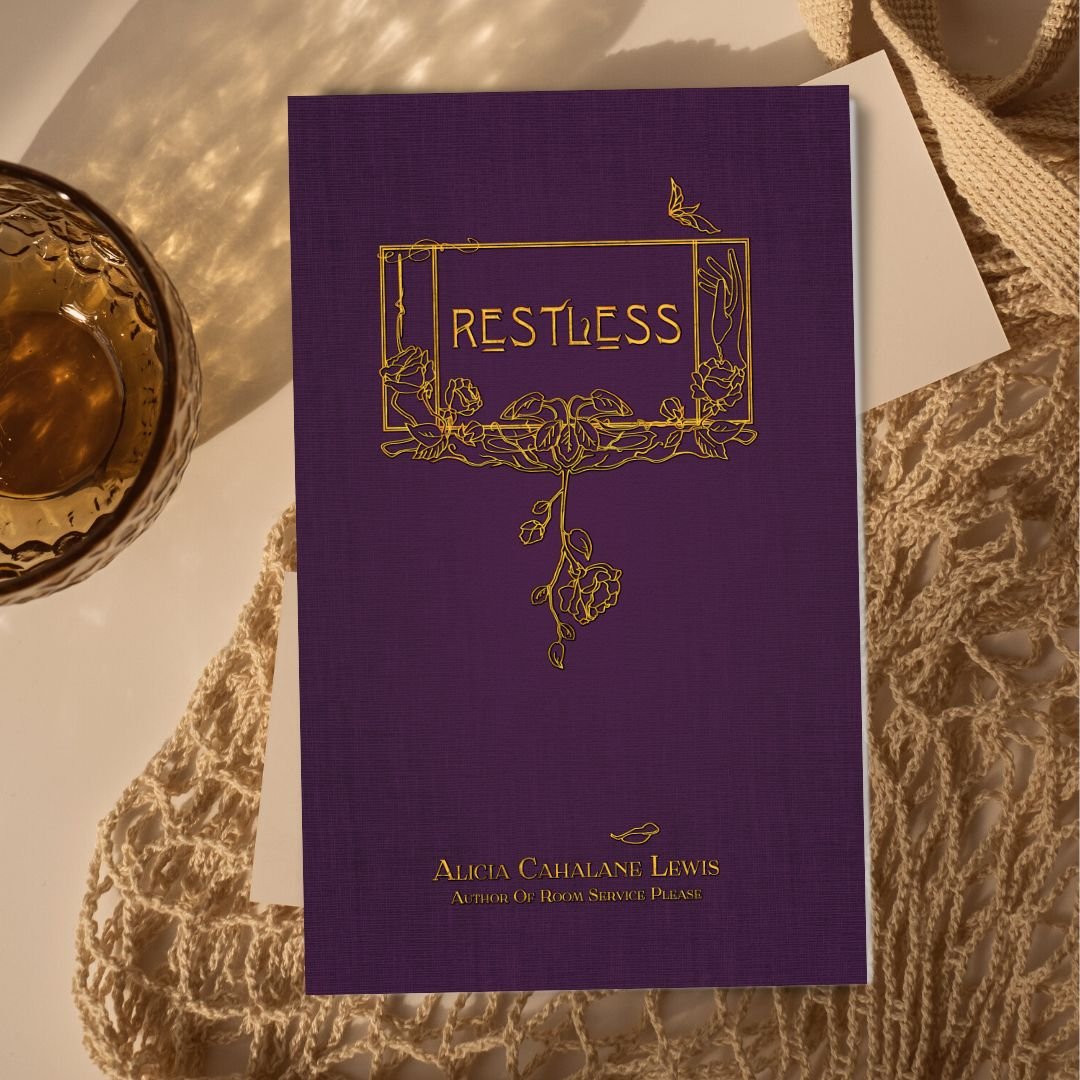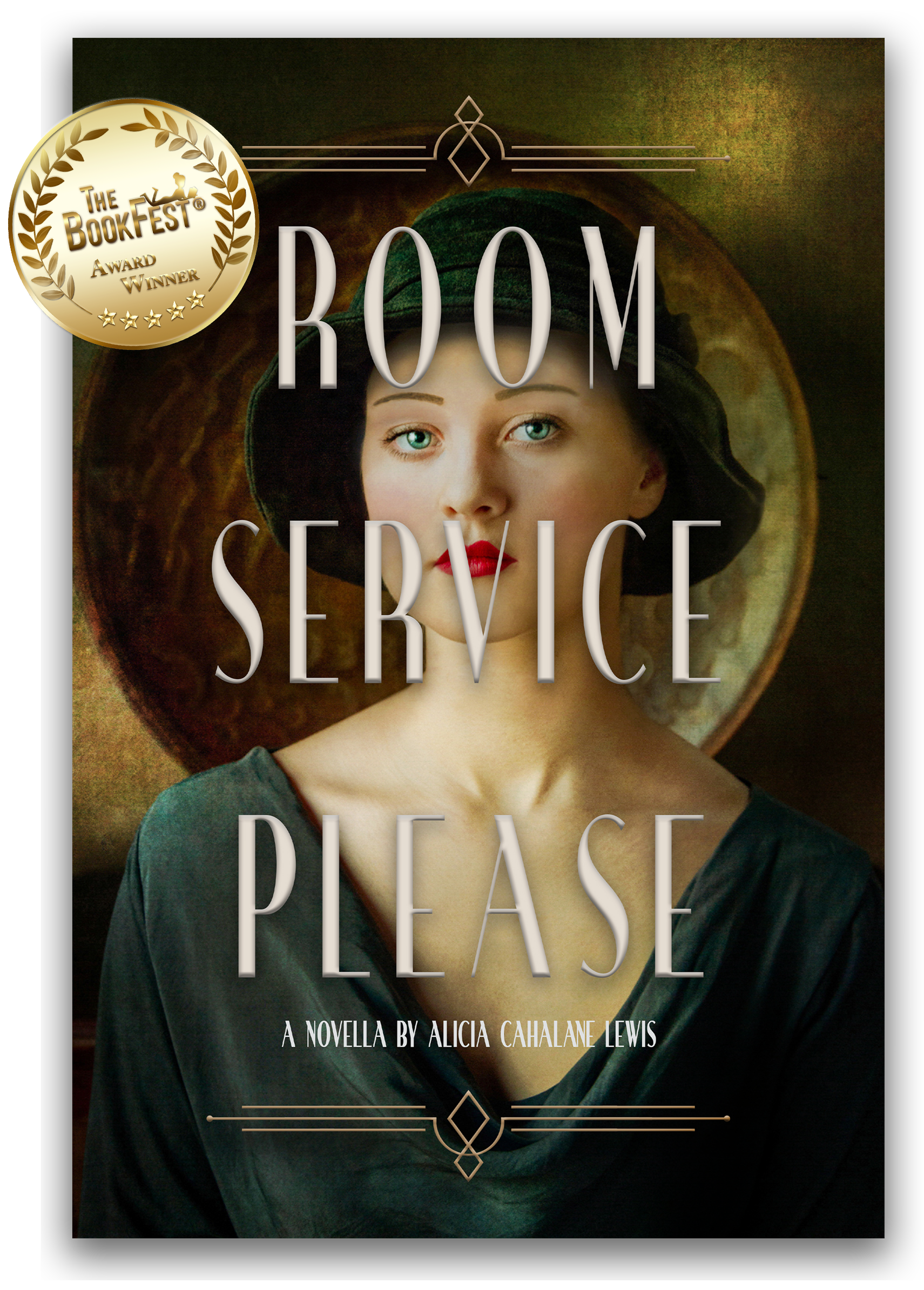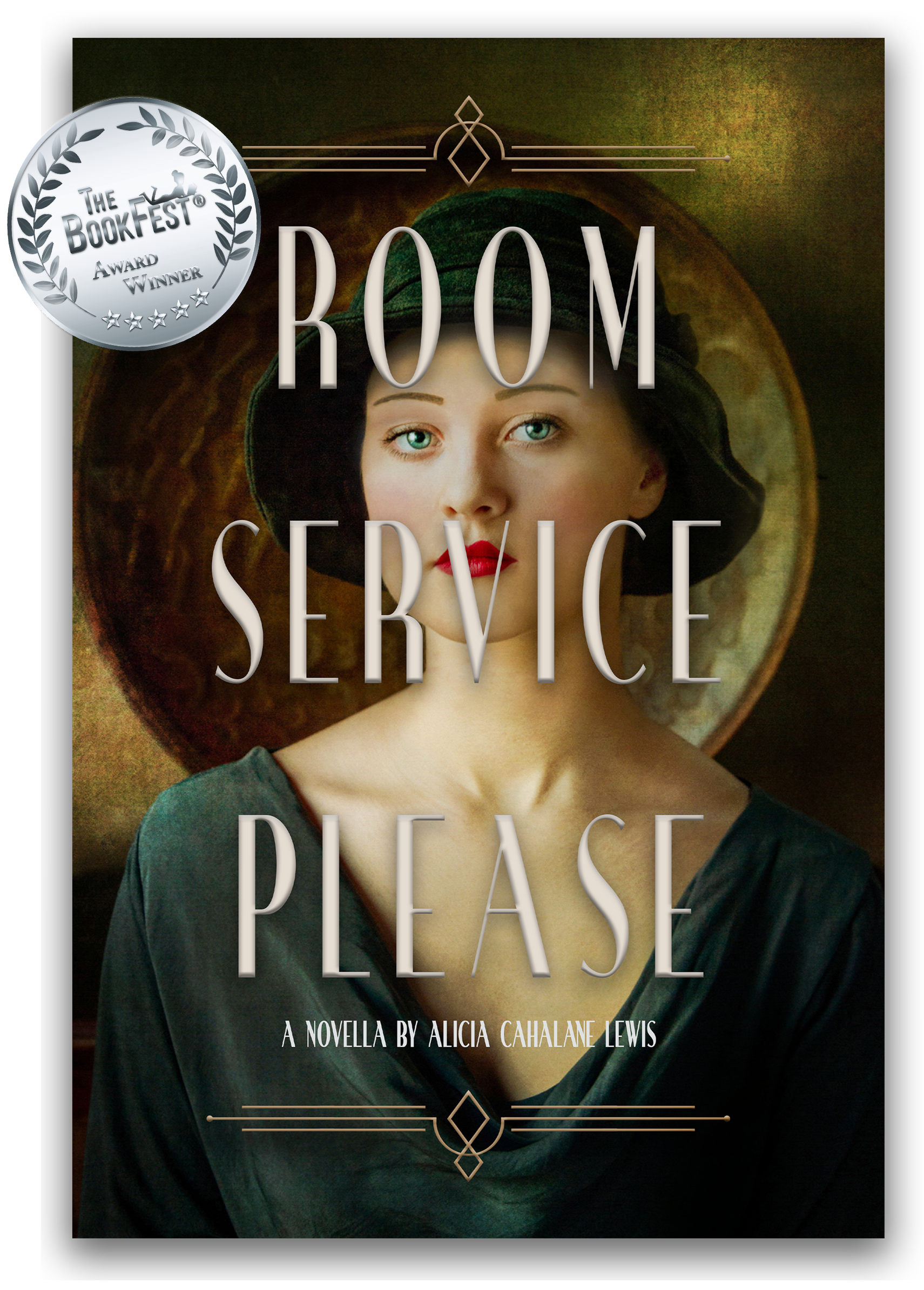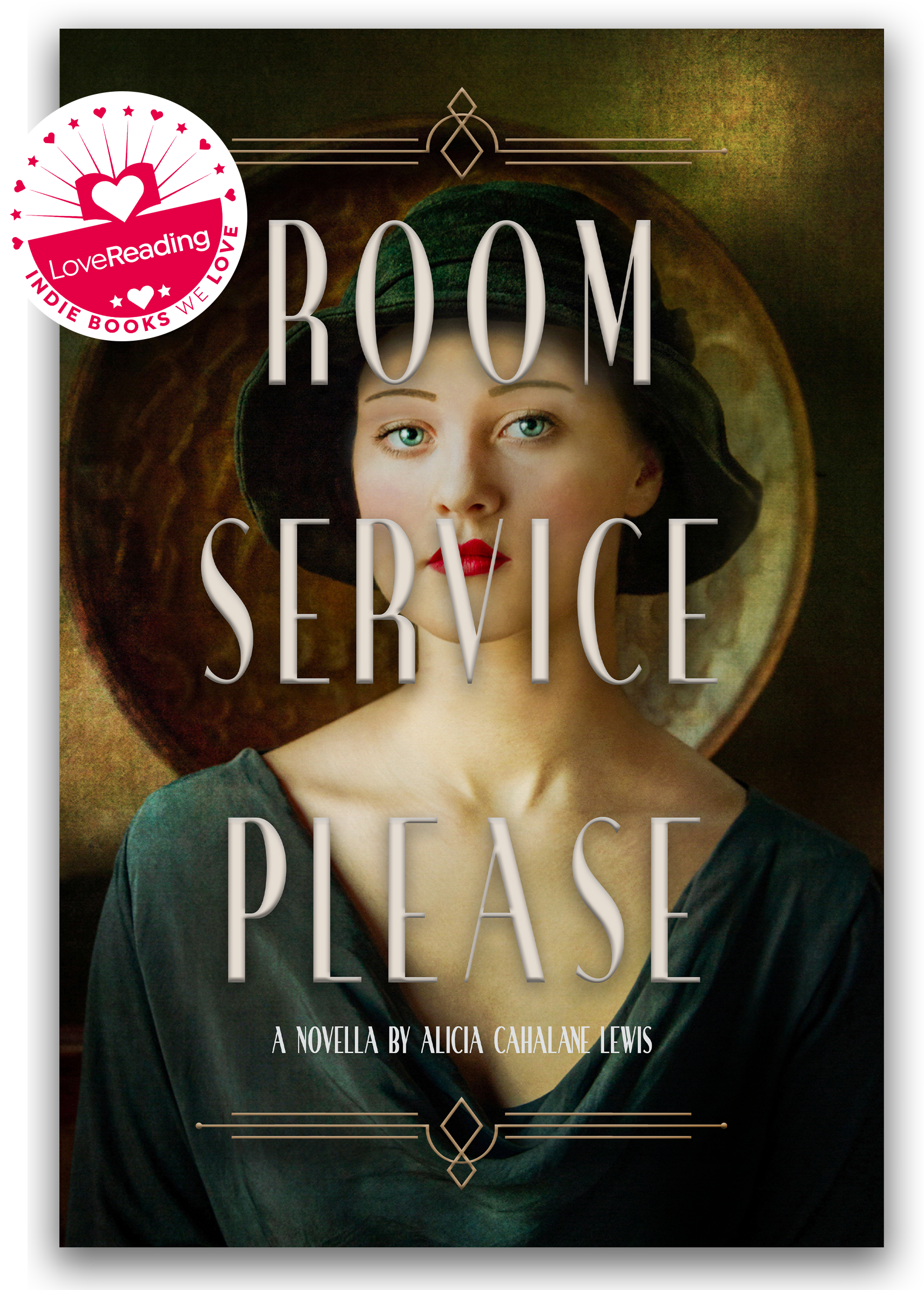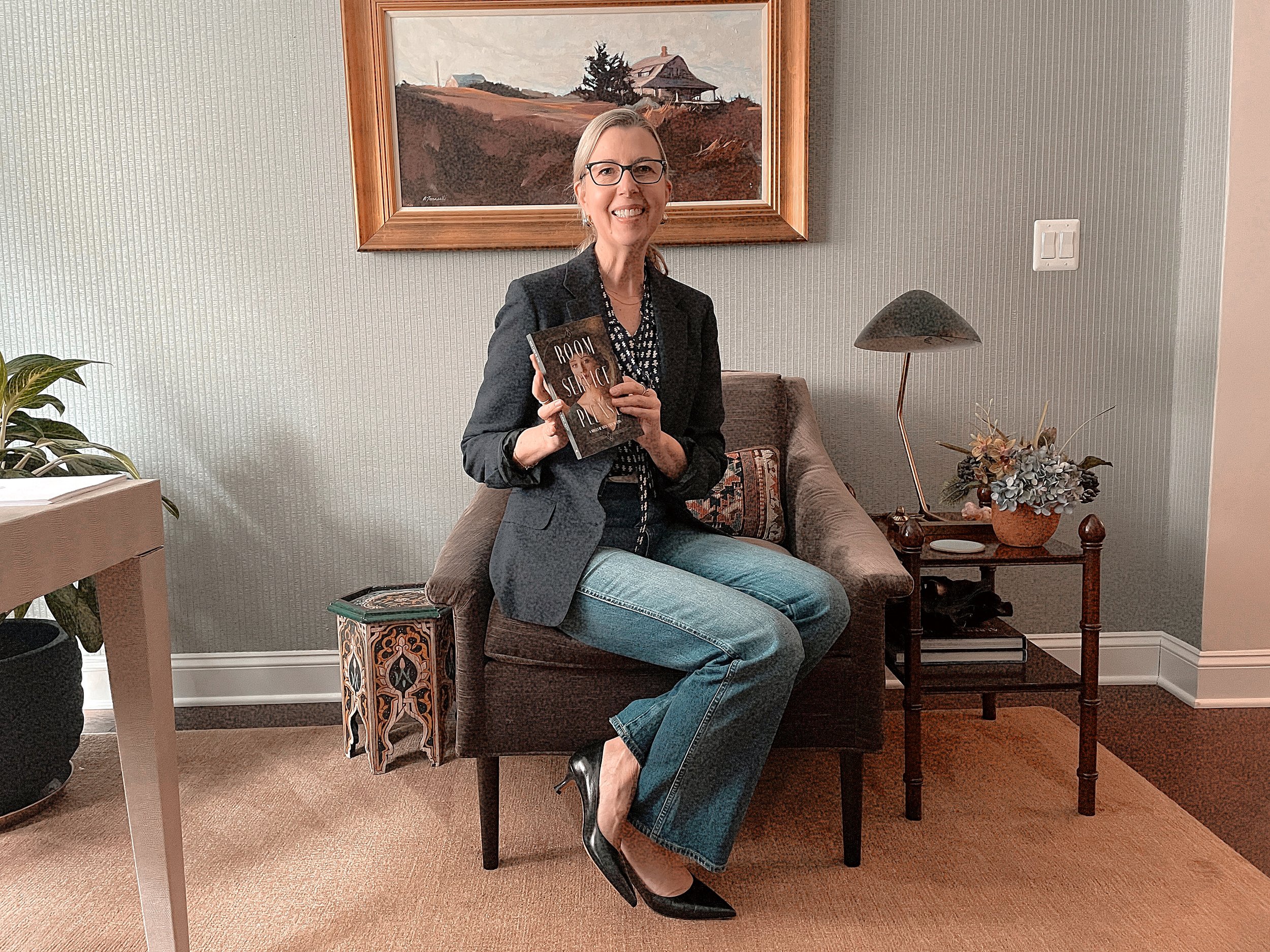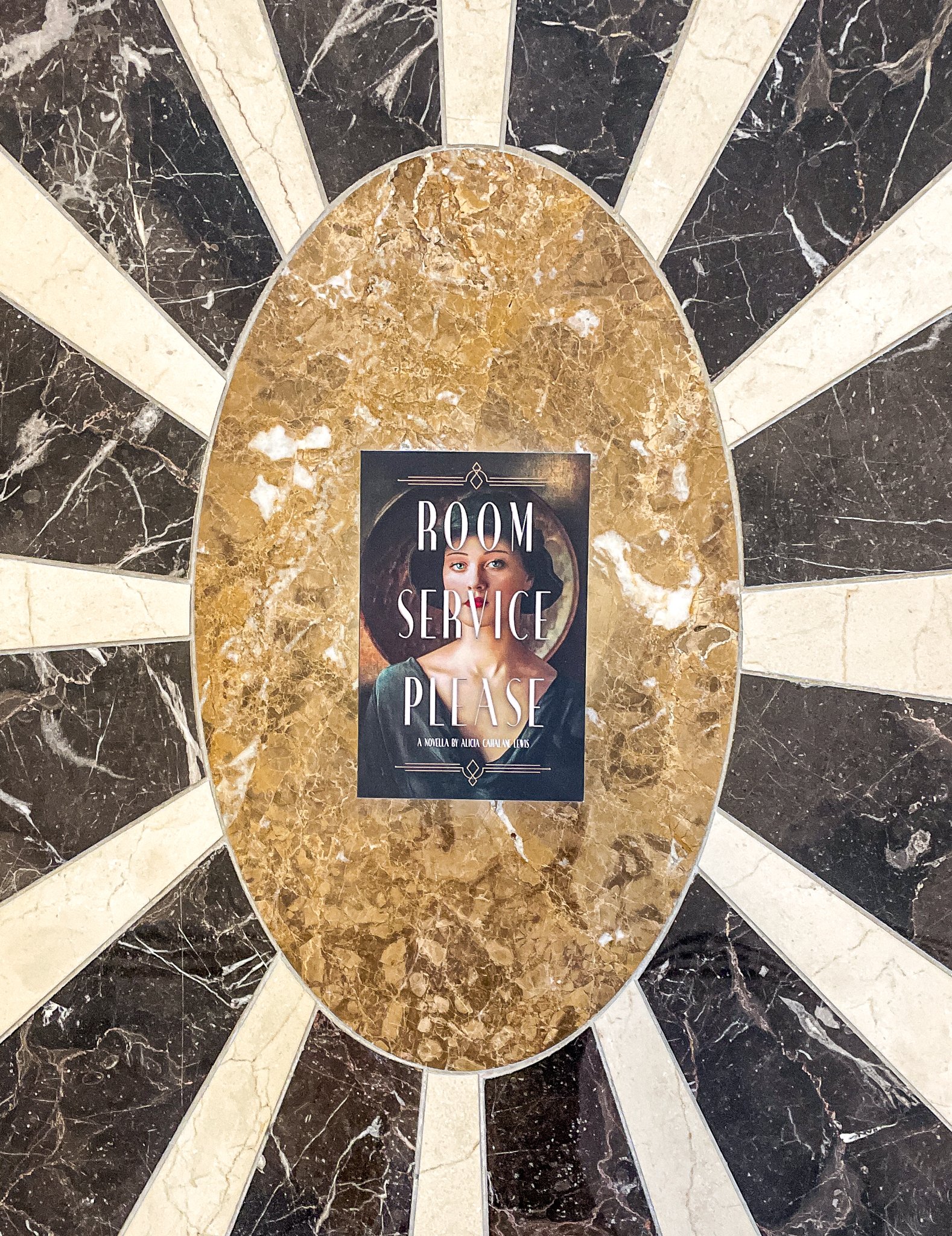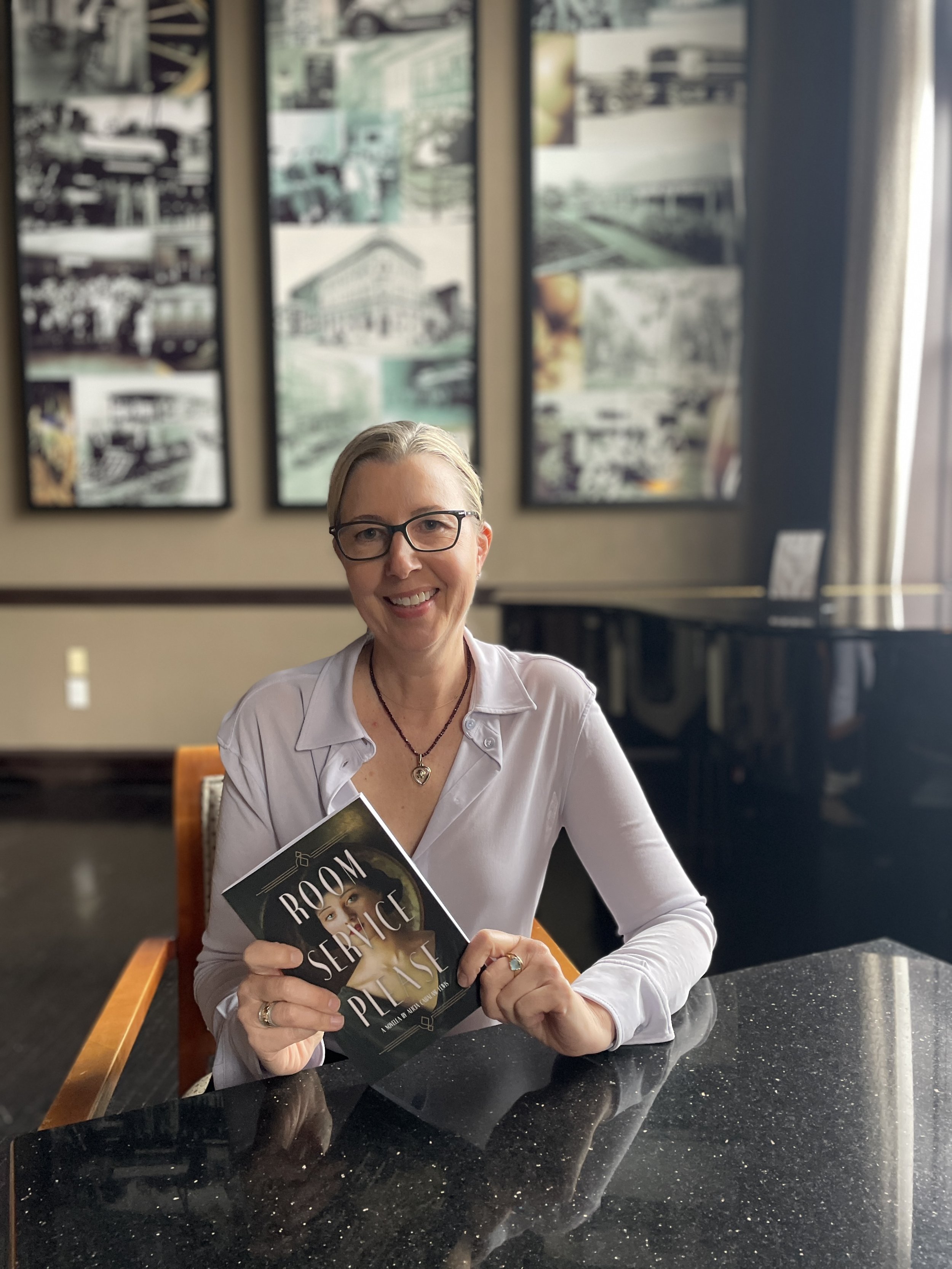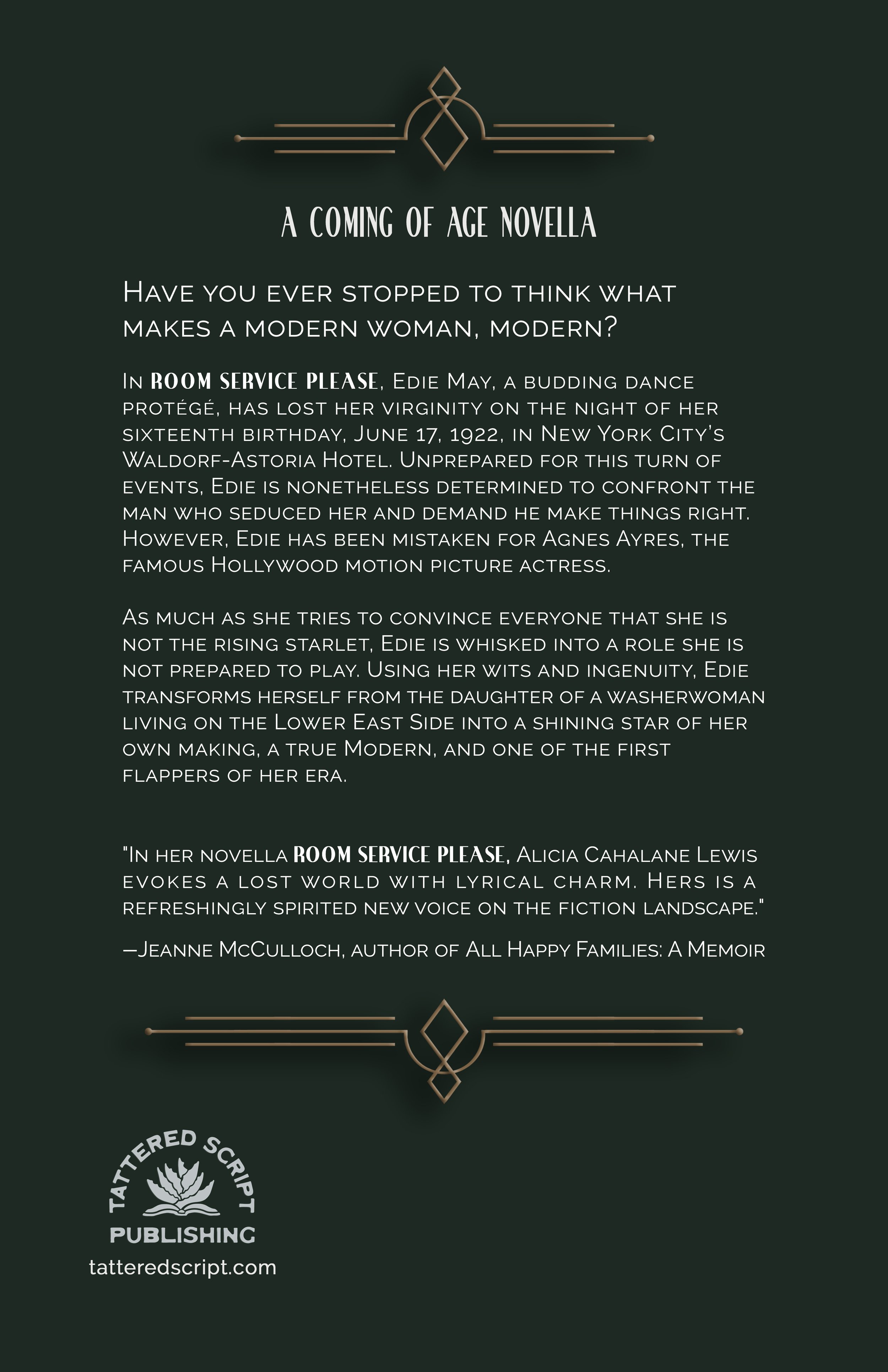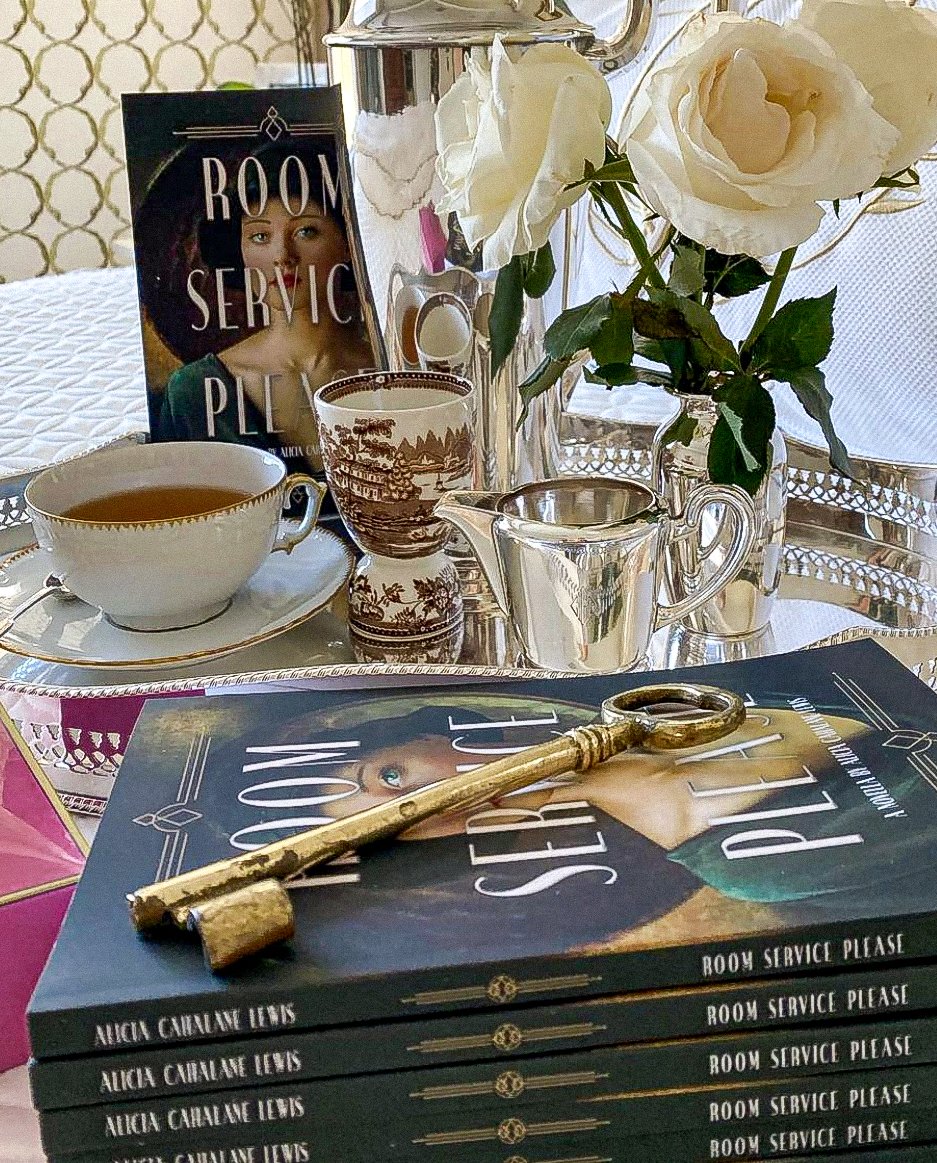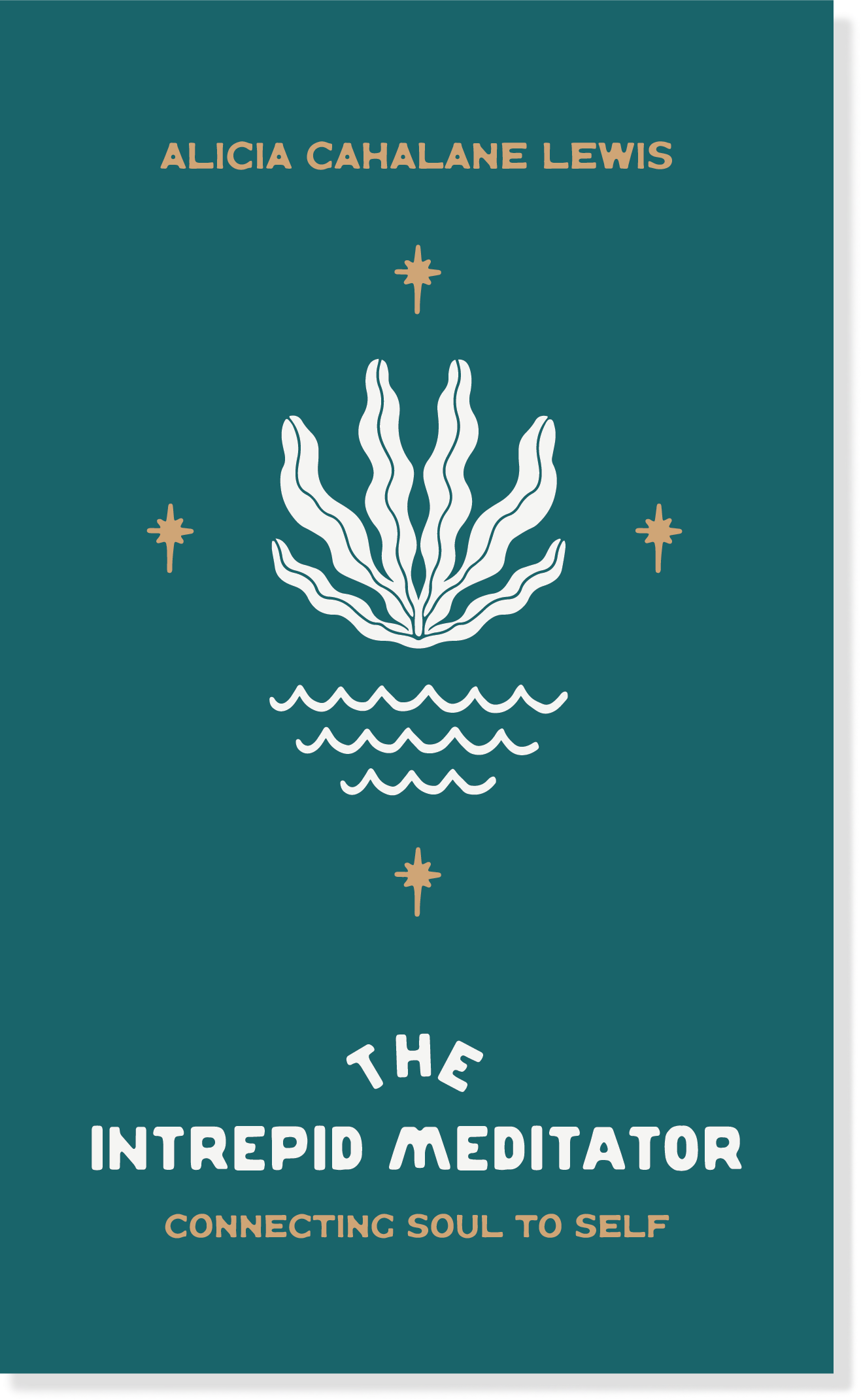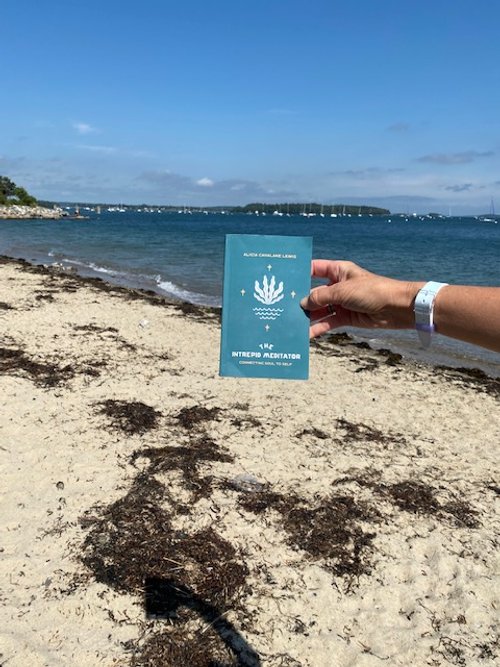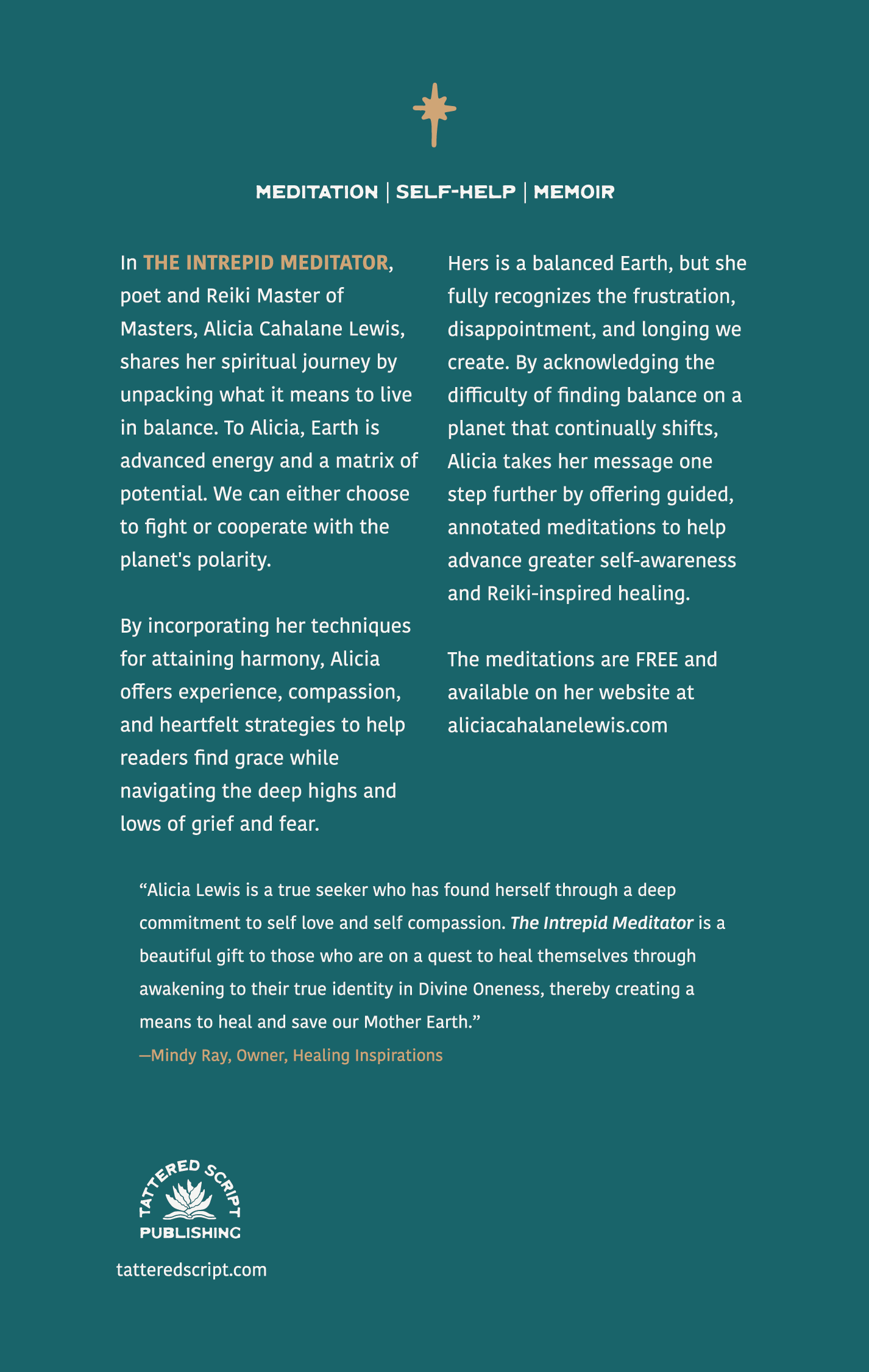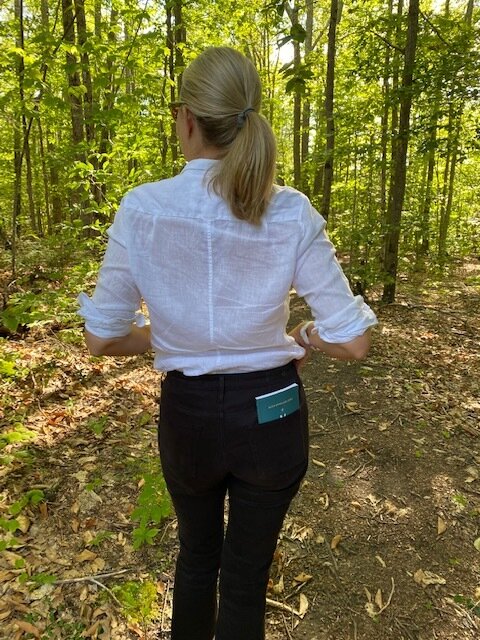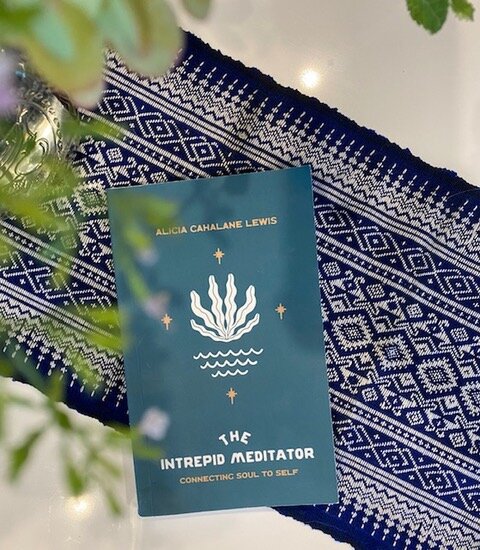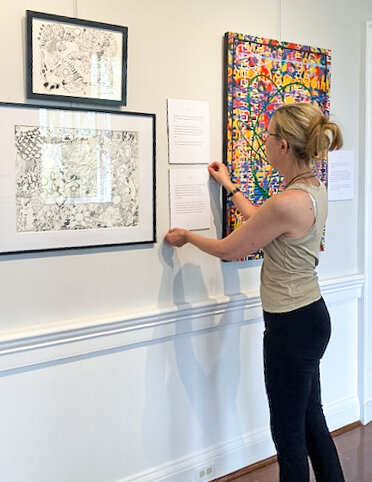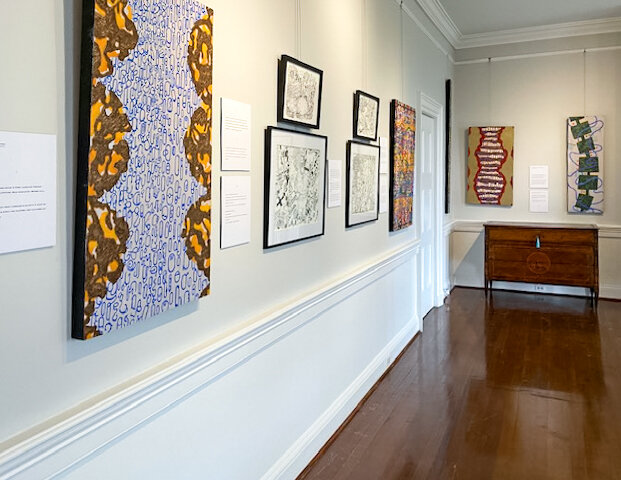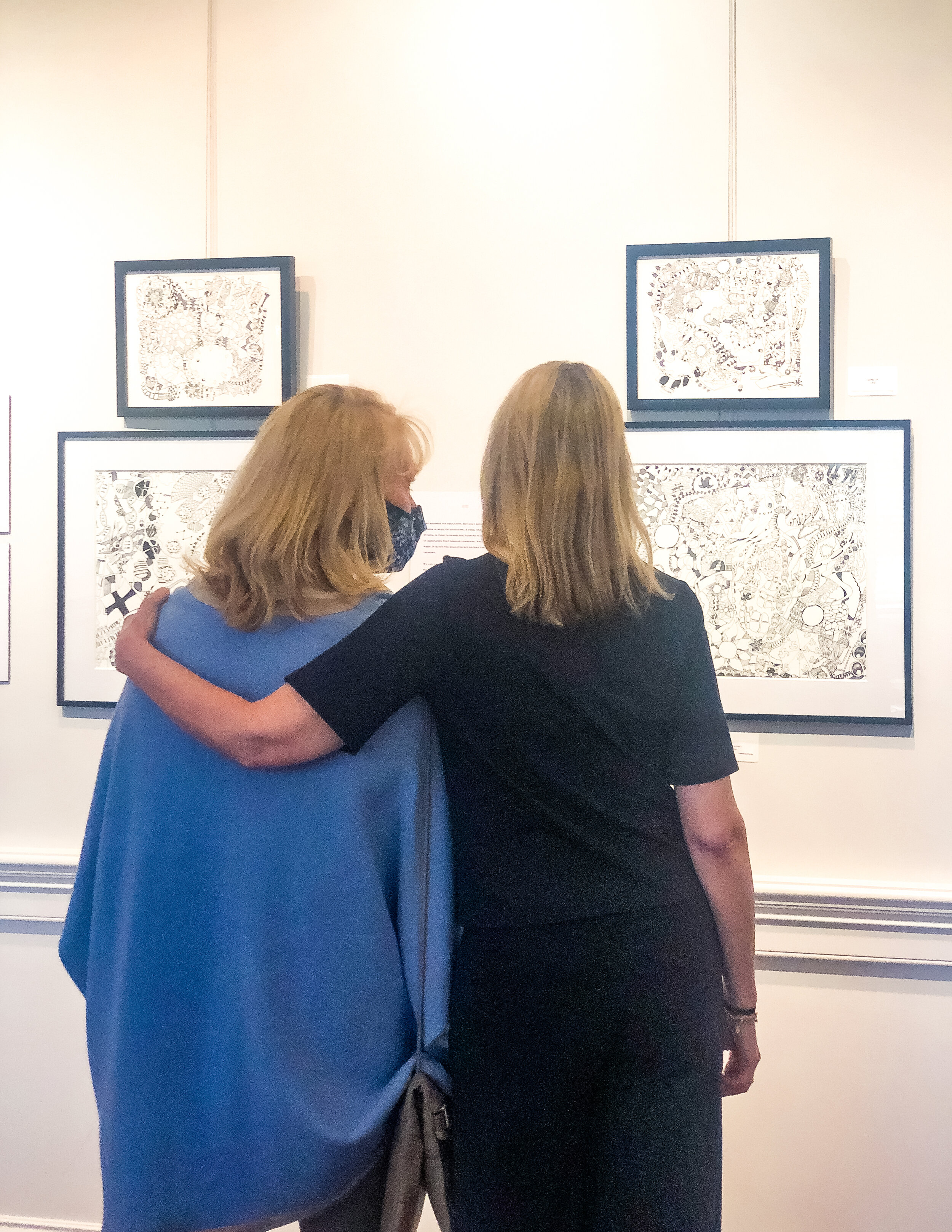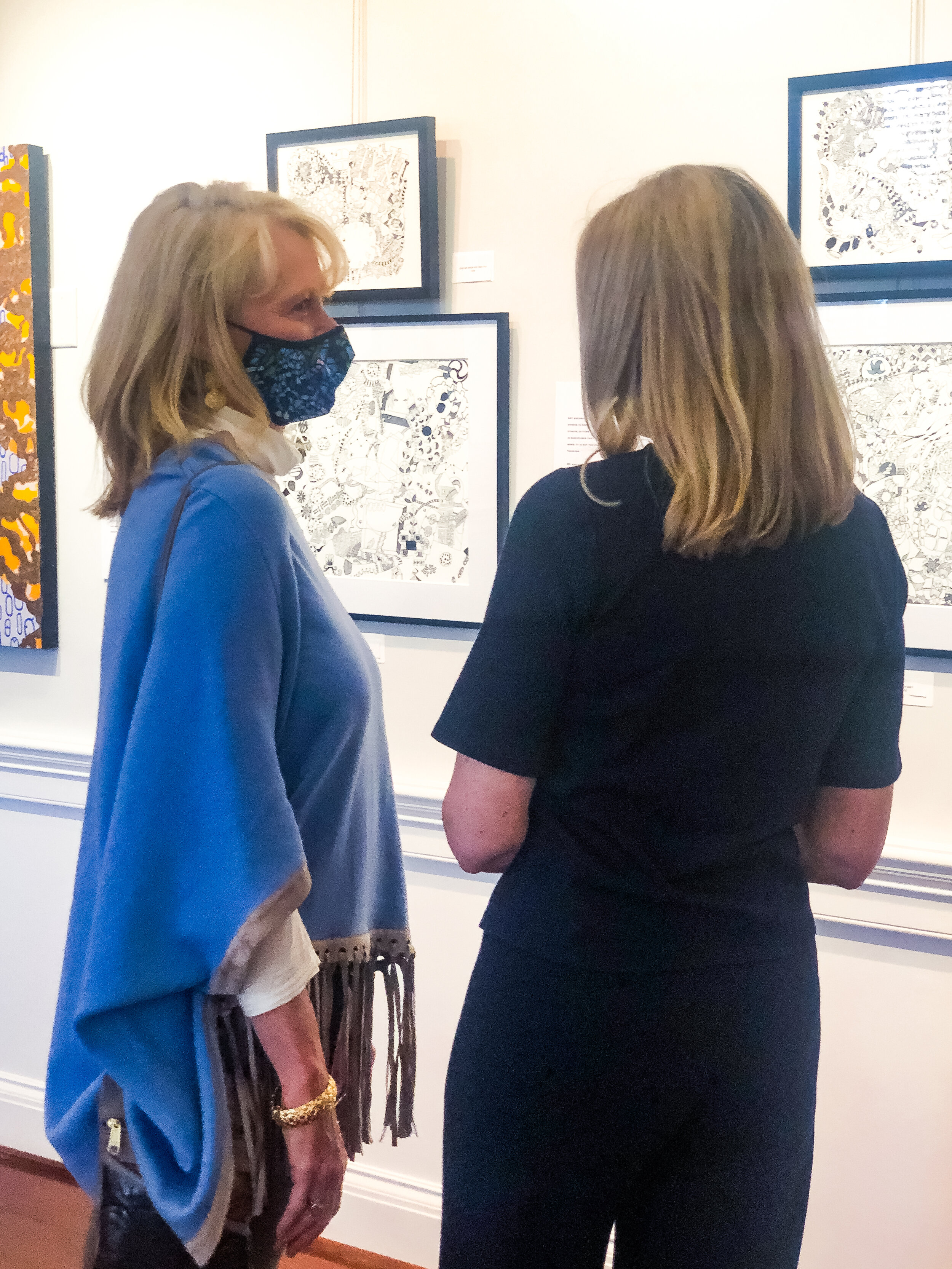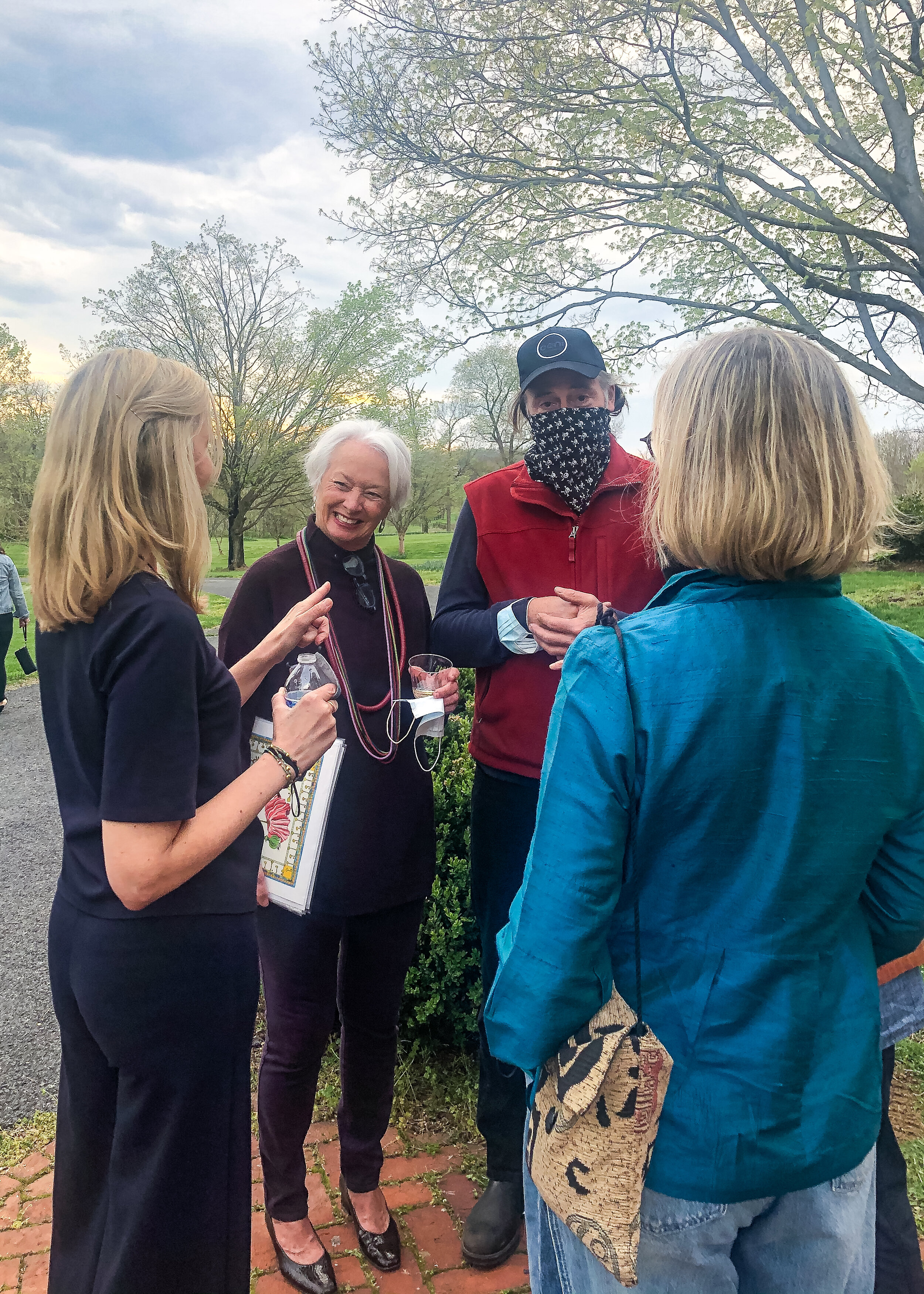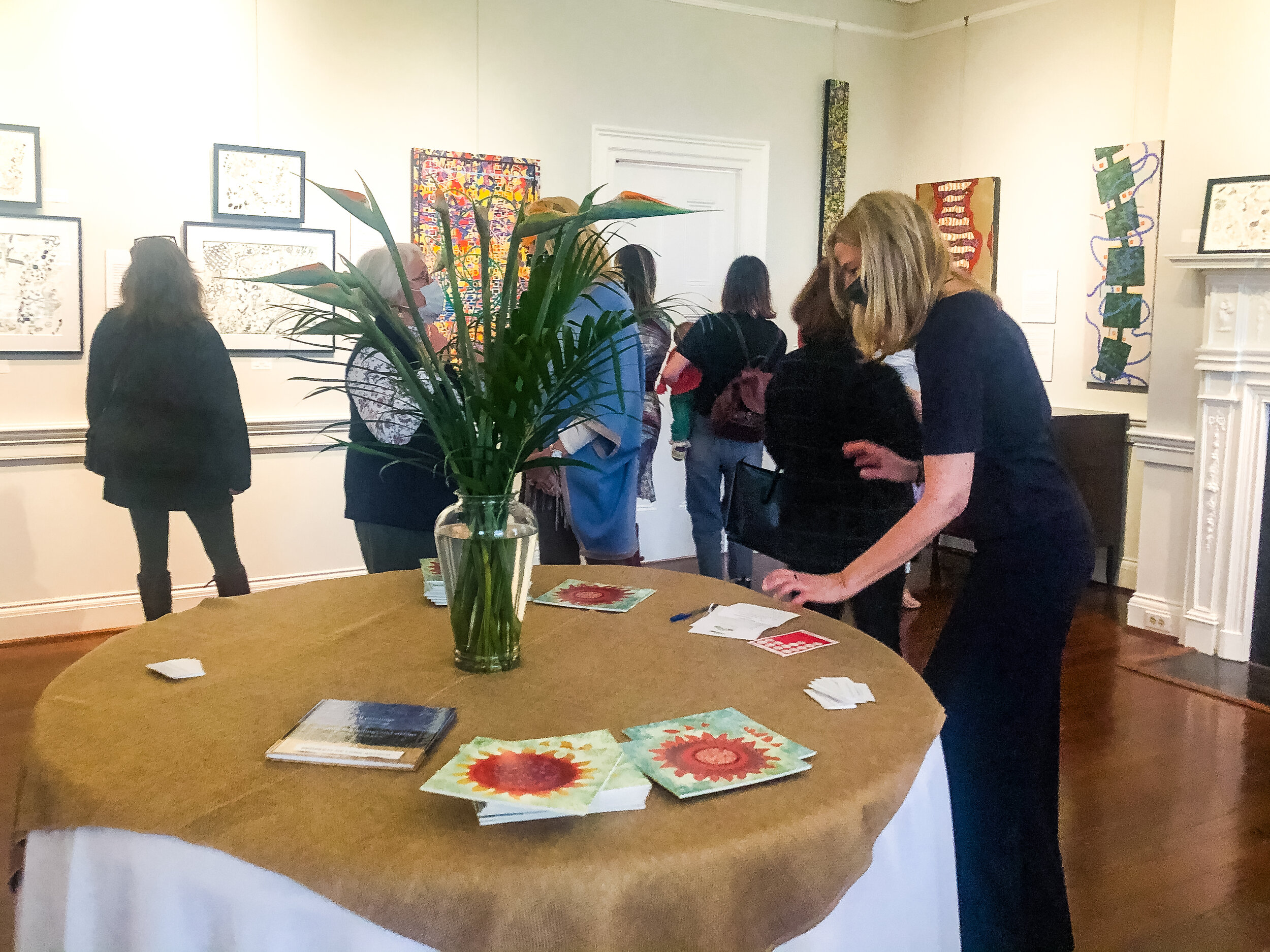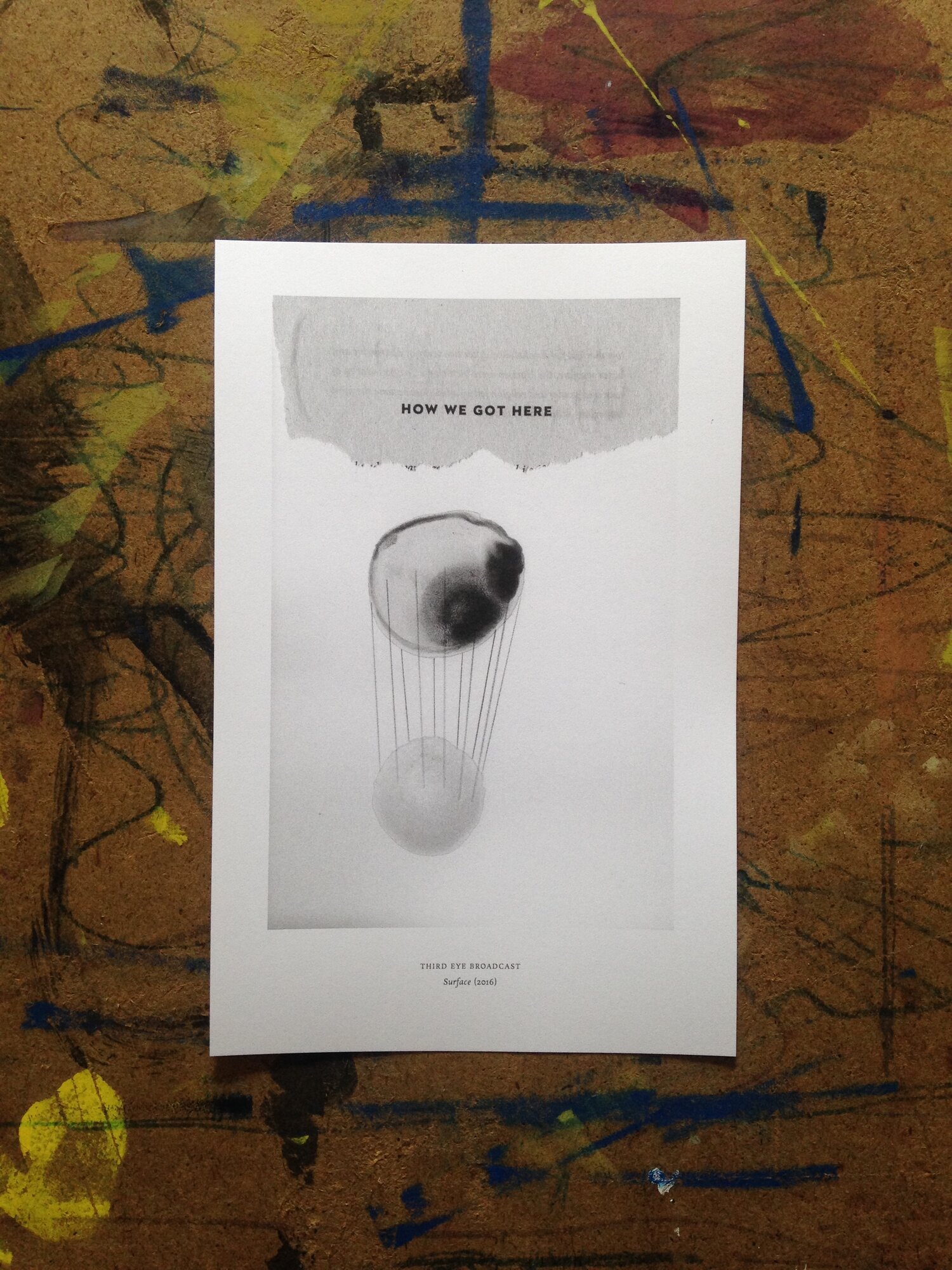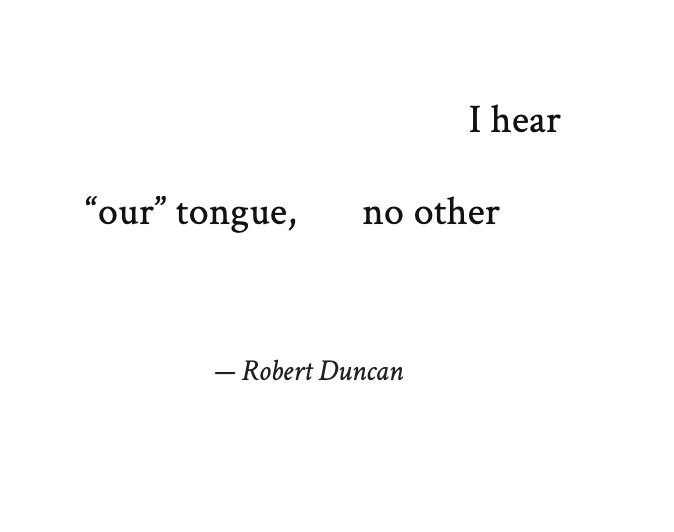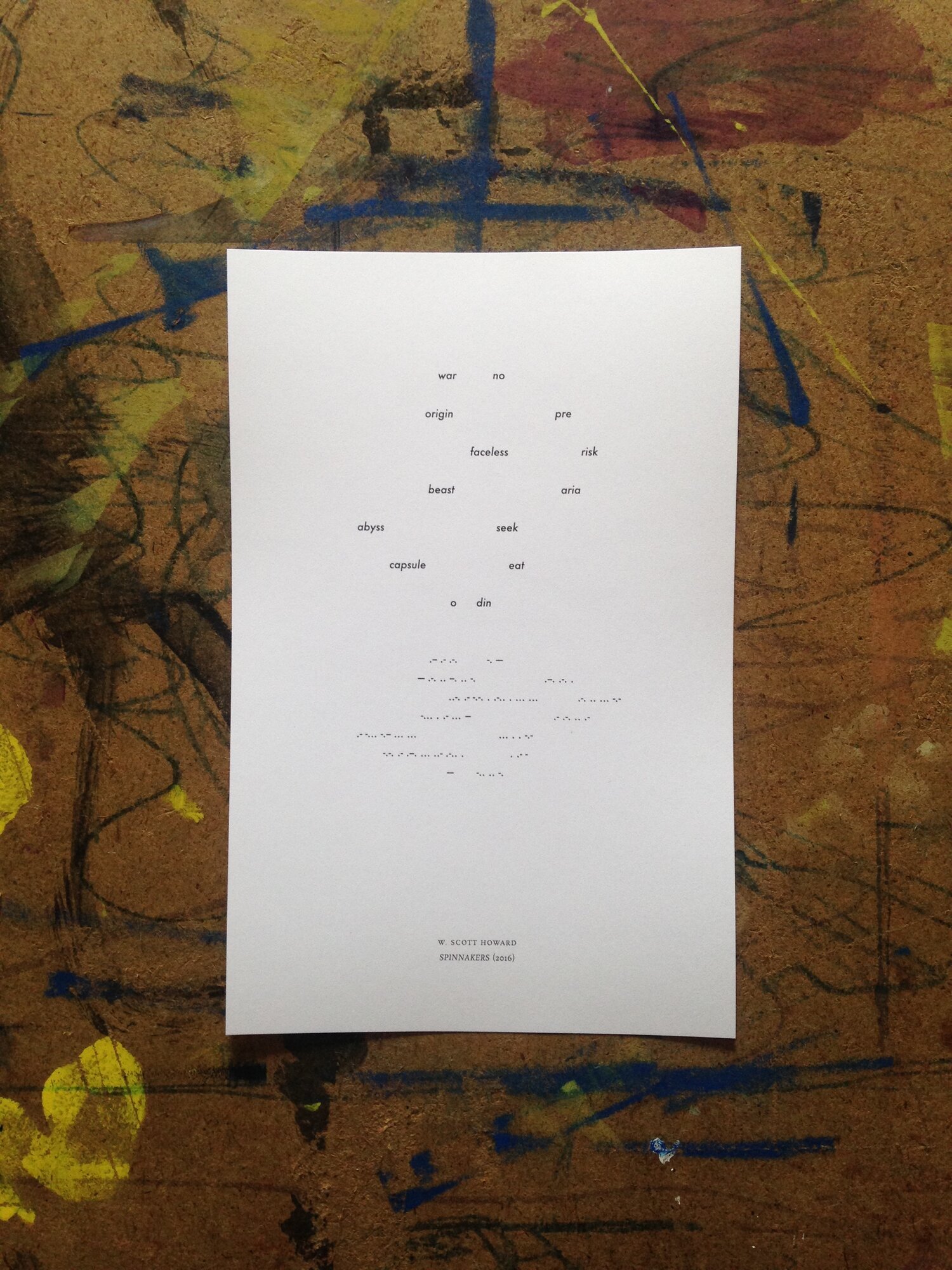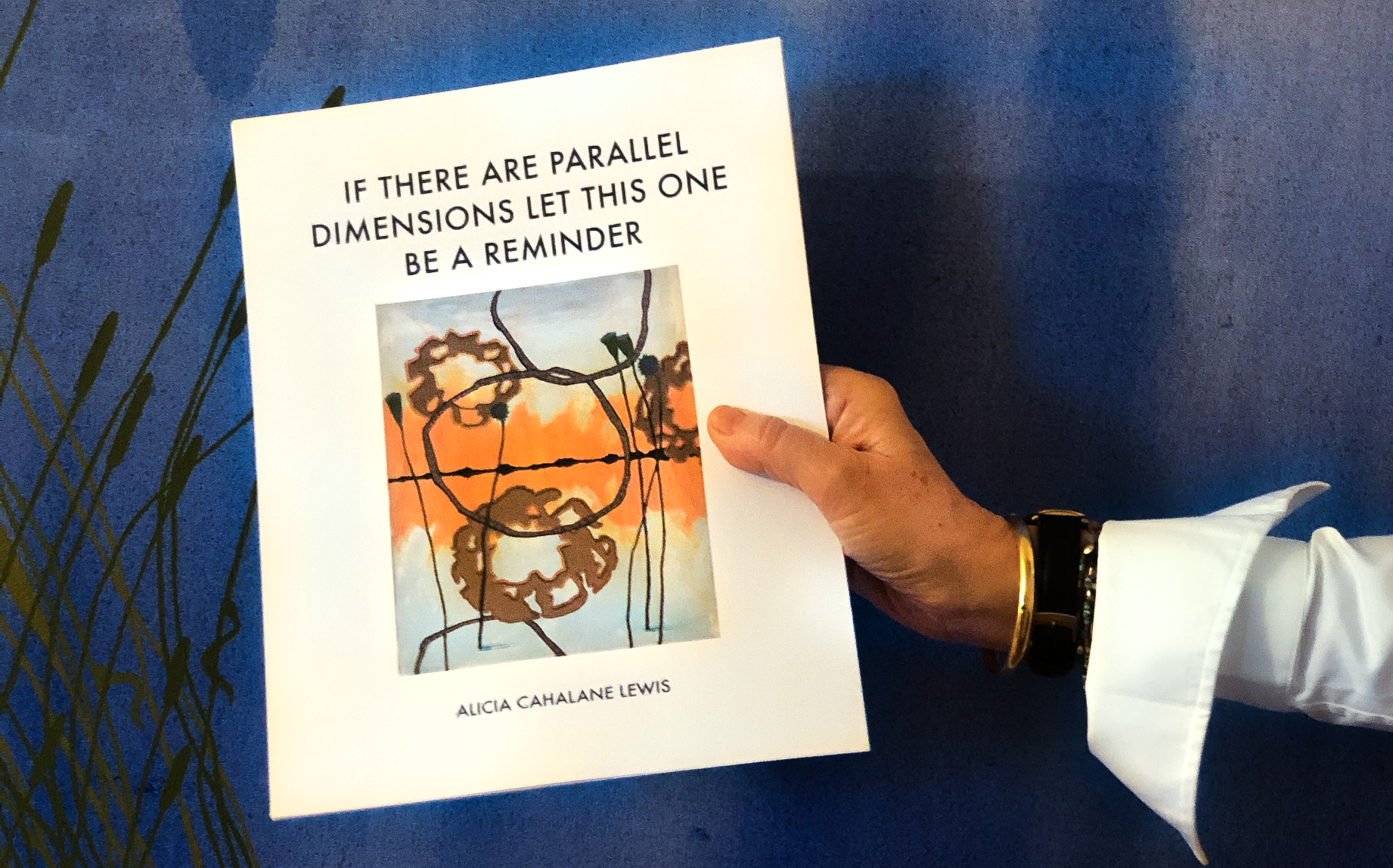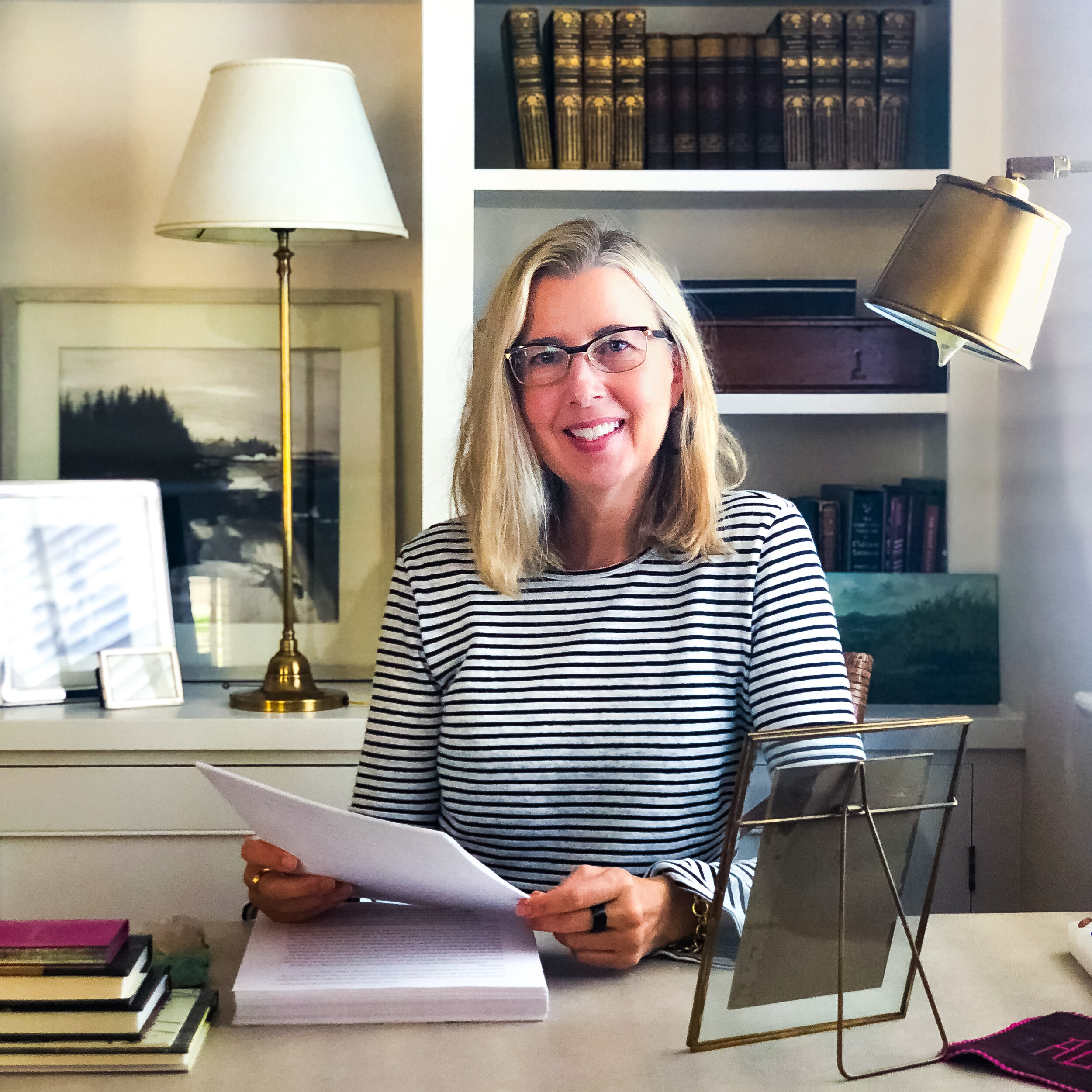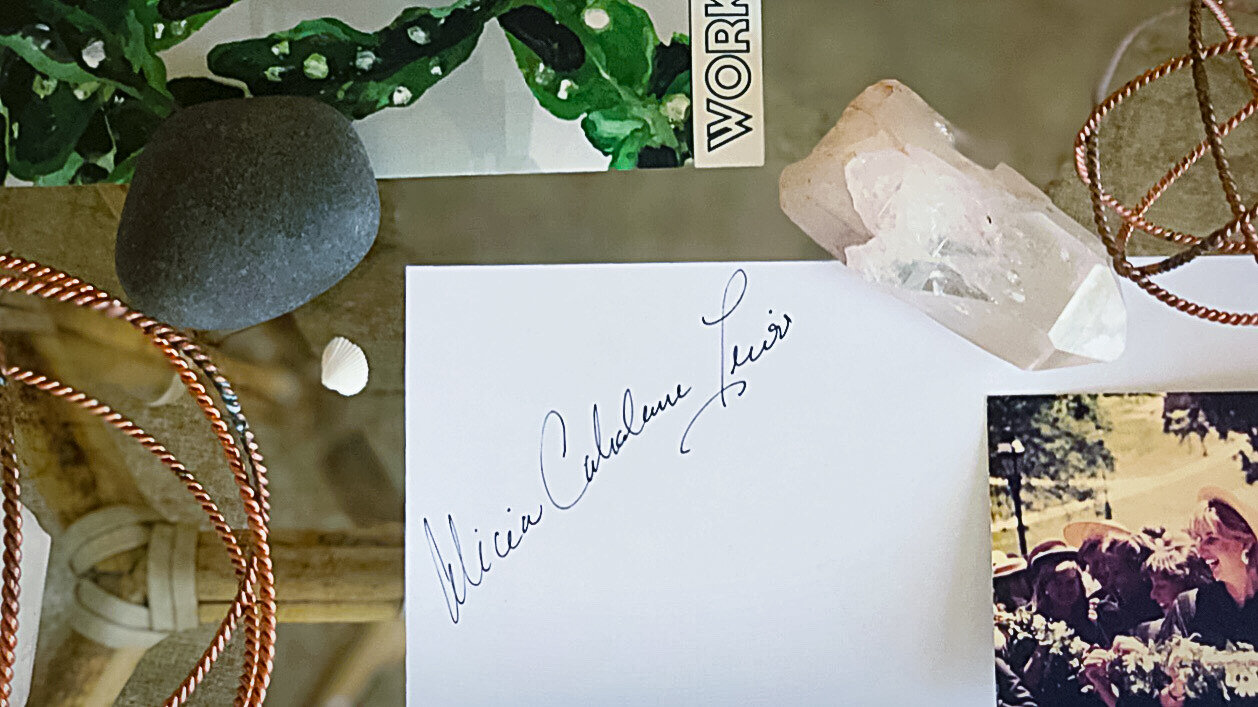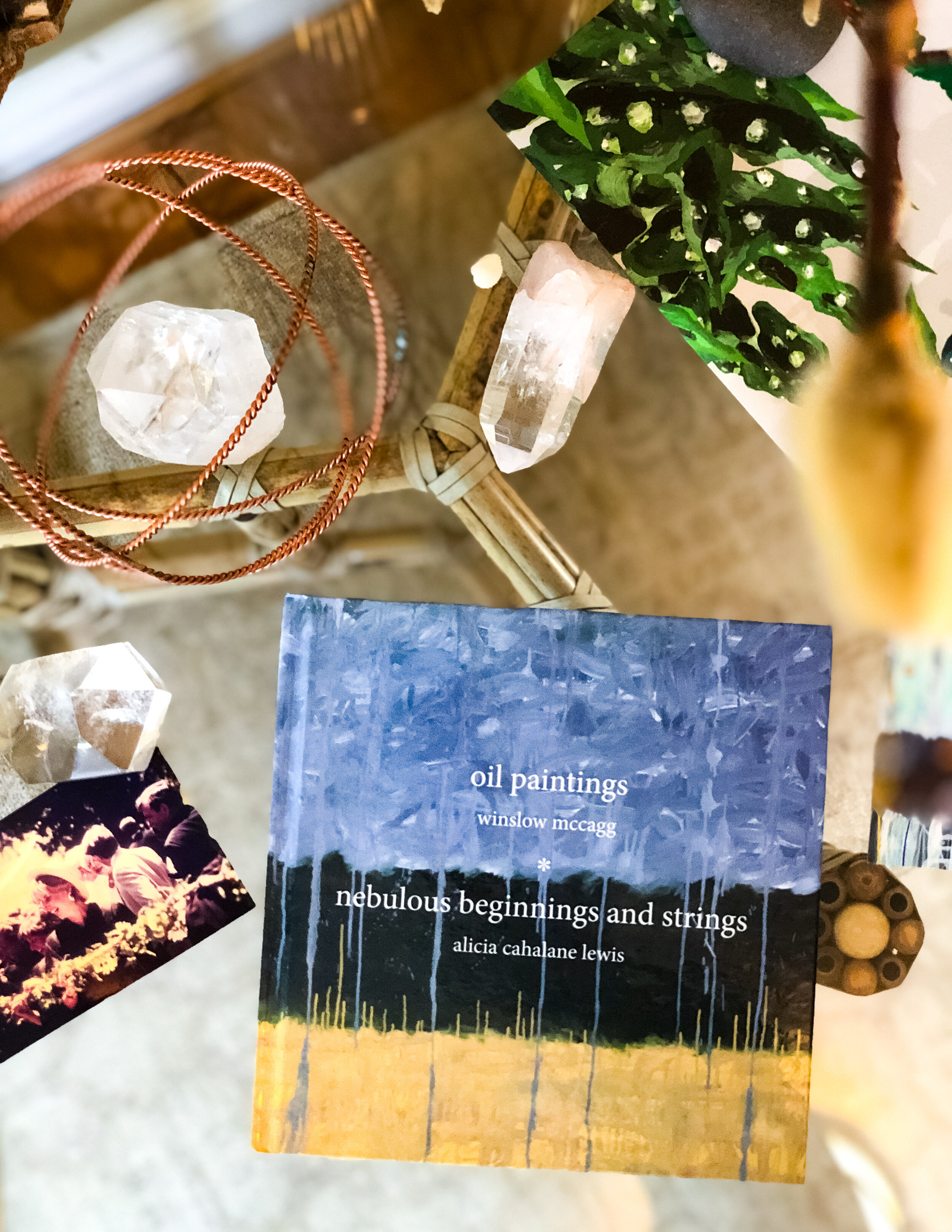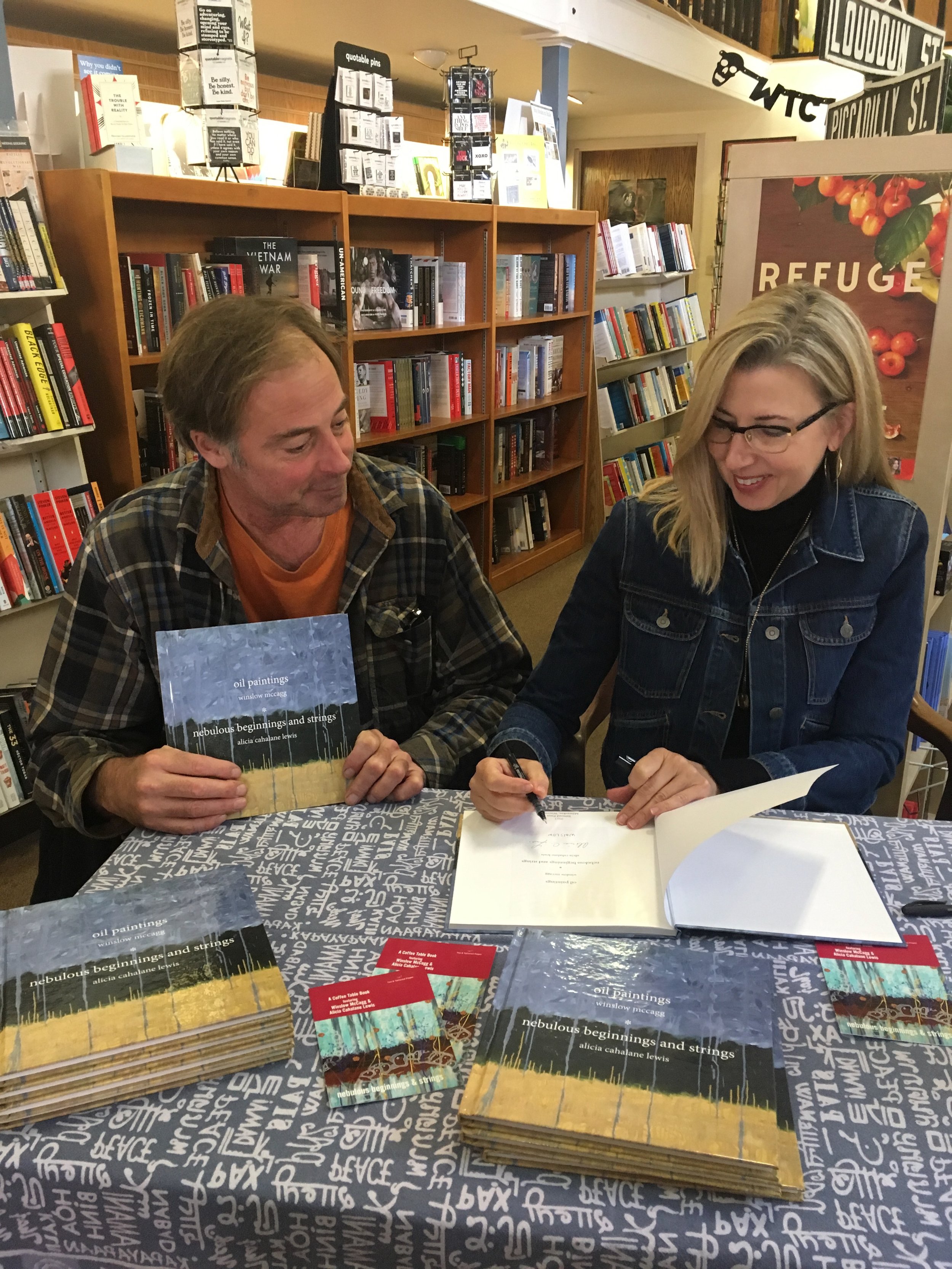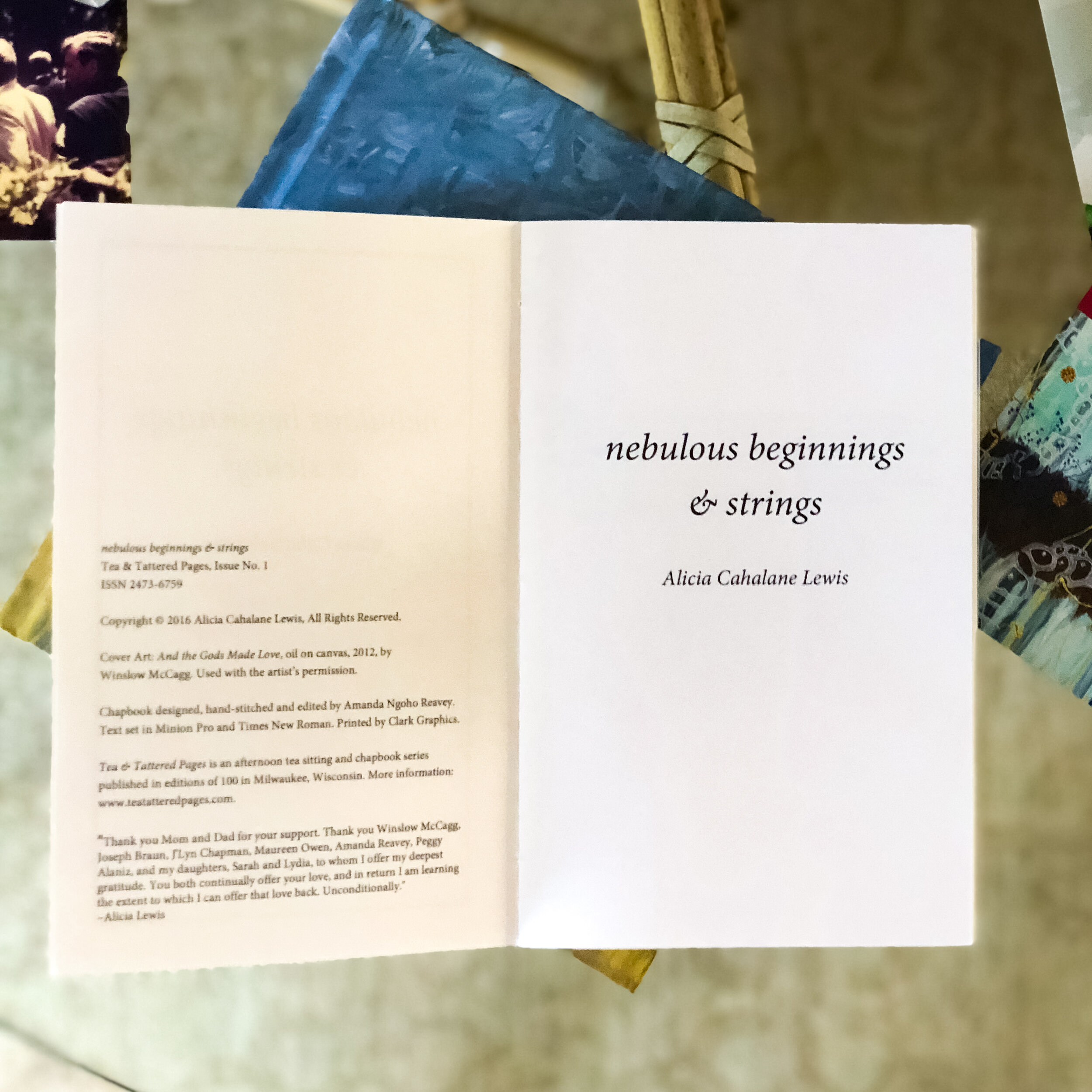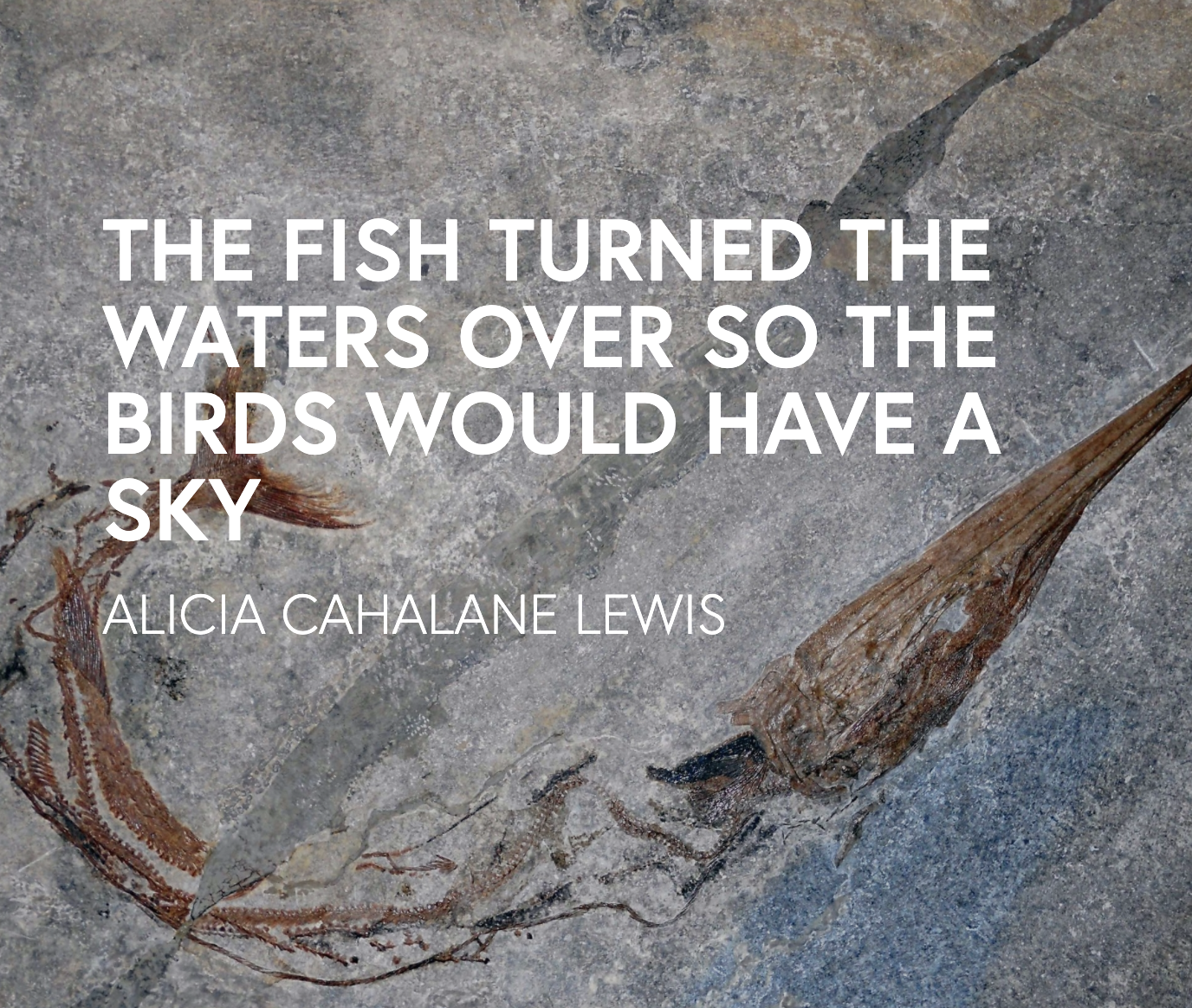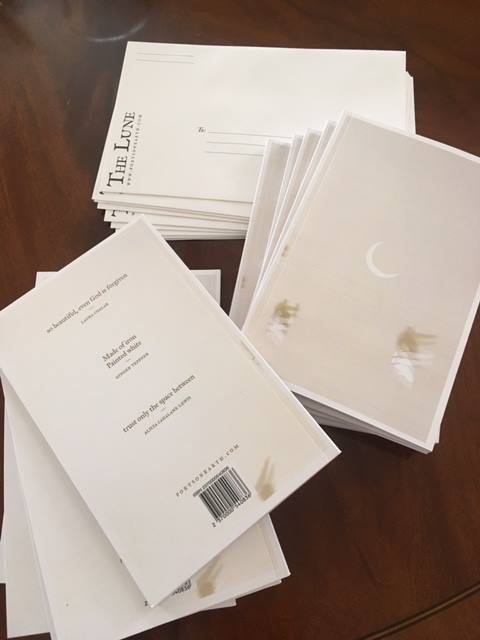Kirkus Reviewed Novelist and Poet
Creating works for adults, young adults, creatives, and literary explorers.
"Alicia Cahalane Lewis lives within questions and beyond answers; this requires unassuming elegance of mind."
– Joseph Braun, editor of The Lune –
The LONGEST DAY
October 2025
The Longest Day is a bold contemporary coming-of-age novella about the power of speech, personal choice, and the courage to uncover what lies buried, both in history and within ourselves.
-
Star Rating: 5 / 5
Alicia Cahalane Lewis’s The Longest Day is a profoundly affecting novel that demands attention and empathy. Told through the eyes of Ellen Abigail Allen, a teenager navigating both the normal turbulence of adolescence and the extraordinary burden of sexual violence, the story resonates with a clarity that is painful but necessary. As an older woman, I felt deeply the echoes of my own generation’s struggles, moments when young women were told to endure, to be silent, to accept rather than resist.
From its earliest pages, the book situates us in Ellen’s conflicted interior world. She writes, “I fall somewhere in the gray undiscovered realm of a boy/girl. A composite. A germ cell." This candid self-assessment highlights the uncertainty of identity at an age when expectations about gender feel both rigid and suffocating. Ellen’s refusal to fit neatly into categories, girl or boy, conformist or rebel, reminds the reader that selfhood is never simple, and that for young women especially, identity is too often defined by others rather than claimed for oneself.
The novel also explores the importance of writing as survival. Ellen clings to her composition books, numbering them and filling them with her most private thoughts. “My most precious secrets go in here," she confesses, fiercely protective of the words she commits to paper. For me, this detail spoke volumes about how young women safeguard their voices when the world refuses to listen. The composition books become both shield and sword, a place where Ellen can exist on her own terms even as her physical environment betrays her.
The dynamic between Ellen and her peers is another central thread. Her friendship with Sylvia is marked by both admiration and frustration. Sylvia is confident, sharp, and seemingly unshakable, yet Ellen knows that even Sylvia might turn her writing into gossip. The tension between loyalty and betrayal among girls at that age is rendered with authenticity, underscoring how vulnerable Ellen feels. Later, her interactions with Justin reveal yet another layer: the confusing overlap of attraction, mistrust, and unexpected solidarity. His attempts to comfort her after Mr. Wallace’s assault ring hollow, highlighting how even well-meaning peers cannot truly shoulder the weight of what Ellen endures.
Lewis’s prose captures the claustrophobic reality of adolescence with striking detail. When Ellen describes sitting in Ms. Swift’s classroom, forced to read aloud from Romeo and Juliet while silently reeling from trauma, the reader feels her dissonance: the impossibility of performing normalcy when one’s inner world has been torn apart. The rain and sleet outside mirror her own frozen state, nature itself becoming a backdrop for her turmoil.
What emerges most powerfully is Ellen’s resilience. Despite humiliation, betrayal, and disbelief, she insists on claiming her right to be heard. She resists being reduced to her trauma, even as it threatens to consume her. The novel’s insistence on telling the story in Ellen’s own words, halting, angry, and tender, ensures that she is never silenced, even when those around her try to dismiss or control her.
The Longest Day speaks to generations of women who know the weight of silence, while offering younger readers a story that insists on truth. Alicia Cahalane Lewis has written a haunting and necessary reminder that bearing witness is itself an act of courage.Reviewed by Jessica Fahey, Los Angeles Book Review
-
Alicia Cahalane Lewis’s The Longest Day is a raw and courageous novel that blends memoir-like intimacy with the voice of a young girl navigating the boundaries of identity, power, and survival. At its core, this is Ellen Abigail Allen’s story—one told with unflinching honesty about girlhood, betrayal, and the search for selfhood in a world that too often diminishes or disbelieves women. From the opening lines—“There’s something I need to tell you. It’s about a rape. My book won’t be easy to read,” the reader knows they are entering a narrative that will not look away from pain, nor from the uncomfortable truths that come with it.
The book’s most striking theme is survival in the face of systemic silencing. Ellen’s voice is layered with hesitation and strength, innocence and fury. She grapples not only with the trauma of abuse at the hands of a teacher but also with the secondary betrayal of authority figures who dismiss her cries for help. Mrs. Burke, the administrative figure who should have protected her, reduces Ellen’s pain to “ego,” telling her not to “put your ego up on a pedestal.”. This moment rings painfully true for many readers familiar with the ways institutions protect themselves before children. I found myself deeply sympathetic to Ellen’s repeated attempts to name what happened, even as adults around her insisted she remain silent.
Another powerful thread running through the book is identity, particularly what it means to grow up female in a culture that constantly demands justification. Ellen’s early reflections, “There’s nothing wrong, as there’s nothing right, about being a girl. It’s not something I wanted to be…It’s who I am,” capture the universal adolescent uncertainty about belonging, magnified by the expectations placed upon girls. Her comparisons to her mother, who idolizes Gloria Steinem but pushes Ellen to “be her own Gloria,” underline the generational tension between feminism as an ideal and lived reality.
Lewis also interweaves themes of friendship, betrayal, and first love. Ellen’s uneasy bond with Sylvia and her complicated encounters with Justin add dimension to her voice. These relationships, awkward and sometimes painful, feel authentic to the adolescent experience. They serve as counterpoints to the darkness, reminding the reader that even amid trauma, there are still moments of longing, humor, and humanity.
Reading The Longest Day is not easy, and it should not be. It demands empathy, attention, and reflection. As a woman, I felt both protective of Ellen and in awe of her resilience. Her story reminds us of the courage it takes to speak when silence is expected, and of the necessity of listening to young voices even when they are halting, angry, or ashamed. Alicia Cahalane Lewis has given us a book that is as unsettling as it is essential.
Reviewed By: , Kathryn Dare, San Francisco Book Review
When Ellen Abigail Allen, a studious fifteen-year-old freshman at The Craftsman, an elite private school in Washington, D.C., is falsely accused of stealing archaeological data that points to the location of Nefertiti’s lost tomb, her world is shattered. What follows is a traumatic violation that leads to a chilling threat from her biology teacher: stay silent, or be expelled.
Torn between fear and a desire for justice, Ellen stays silent. But when an ice storm traps her in the building overnight with her best friend, Sylvia, and the school’s outsider, Justin, secrets unravel. Together, the three teens decode the mystery of the tomb and confront what they have been hiding for far too long.
A story of secrets unearthed, courage awakened, and wrongs made right.
The ARCHIVIST
December 2024
-
“Lewis’ gripping tale, at under 100 pages, will keep readers guessing throughout. [It] deftly takes readers to another world…an inviting…tale of the desire to uncover a lost myth.”
-Kirkus Reviews
-
“Lewis's novella is an ancient, yet timeless, fairytale of curiosity, discovery, and corruption. The narrators' perspective plays with your mind a bit.
Who is this "we?" What is their journey and why do we yearn to follow them? It begs the question if this cycle of their goddess will repeat. The answer is as sharp as a panther's canines.”
- Miriam Meeks, Manager, Middleberg Books
-
"The Archivist is a gem in a sea of stones. Alicia Cahalane Lewis captures the essence of the Divine Feminine and the origins in a way that portrays what and who SHE truly is. I felt HER essence come through in the most unassuming way, it was the vulnerability and humility that resonates through every cell. Truth is being spoken...it was like water for the soul. For anyone who is drawn to Goddess work, read, and be nourished."
-Sarah Michelle Wergin, RN, LAc, Healer, Teacher, and author of Awaken-The Alchemy of Divine Union
-
“Some books don’t just tell a story. They exhume something buried.
“The Archivist by Alicia Cahalane Lewis is under 100 pages, yet it carries the weight of centuries. The voices of women who shaped history. The grief. The fury. The wisdom.
“It’s poetic rage wrapped in myth. It softens you as much as it hardens you. And it lingers like a melancholic dream, demanding anyone you encounter after to endure a tangent on how they MUST read it to experience the story of the Black Panther Goddess who was buried.”-Rachel Alvarez, @rachelrealmreader
Have you ever wondered how legends get created?
Alicia Cahalane Lewis’s gorgeous new novella, The Archivist, imagines how the first feline goddess, the black panther, found her way into the stories and legends of ancient Mesopotamia, Greece, and Egypt.
Narrated in first person plural by a band of roaming nomads who are the first to worship the goddess, they are compelled to honor their black panther, who has dropped into their lives unexpectedly, by building the first feline sphinx.
When a Bedouin girl appears, claiming she was once the black panther the nomads worship, she is dismissed until decades pass, a generation of nomads die, and the girl remains a girl. In time, the next generation of nomads find their goddess in the young woman and begin immortalizing her as she digs from the rubble of their past ancient knowledge.
Once immortalized as the original sphinx, the goddess has been lost. She is asking to be found. Can we dig from the rubble the remnants of our past and honor her, thereby honoring ourselves?
A mesmerizing goddess tale of ancient wisdom and understanding, this is as much our story as it is hers.
The Faeries Of Fable Island
April 23 2024
-
“Alicia Lewis is a poetic writer who uses simple themes to disentangle us from the complexities we’ve built into our everyday lives. In The Faeries of Fable Island, she uses the adventures of a 5th-generation Wendy Darling to reintroduce us to the universal themes in the original Peter Pan: memory, courage, joy, sadness, love, and the uplifting influence of believing in magic. James Barrie would be proud—an amazing evocation of a magical place where spirits are free and dreams come true.”
- Pam Webber, Bestselling Author of The Wiregrass, Moon Water, and Life Dust.
-
“This fantasy novel from Alicia Cahalane Lewis is a deeply philosophical and contemplative reimagining of Scottish novelist J. M. Barrie’s classic Peter Pan narrative.
In 2024, Megan Elida Fay, 16, lives in a dilapidated house on the Maine coast with her aunt. The remote stretch of coastline is a tourist hotspot, as it has been rumored for decades to be the place where believers can sometimes see an imaginary island, allegedly inhabited by Peter Pan himself. Meg’s family has been believers for generations; her great-great-grandmother (named Wendy Darling) apparently visited the island, which featured golden rainbows and fields of transparent poppies. Meg’s mother was a believer as well, but when she died after a battle with cancer, and Meg’s alcoholic father abandoned her, she feels “trapped in a story someone else wrote for [her].”
With the weight of her family’s generational secrets and expectations (as well as her still unprocessed grief) weighing heavily on her, Meg must decide between solving the mystery of the island or walking away from it all to begin her own story.
One of the novel’s strengths is its audacious unpredictability; the narrative doesn’t go where readers will expect it to. There’s also an impressive focus on rich, immersive description, as well as thematically powerful statements: “I look around the room crowded with fading antique books, dark dusty Victorian furniture, chipped glass vases, an umbrella stand filled with rotting silk umbrellas, a carriage wheel, a green parrot feather under glass, and a couple of dried moth carcasses pinned to a board. I wheeze, “We’re collectors of dead things...”
Readers expecting a whimsical story about fairies and the faerie realm will be disappointed. This is a much deeper novel, exploring complex issues like children struggling with loss, dealing with grief, environmental stewardship, the power of belief, and the magic created by embracing wonder.
Deep readers will find this novel unconventional, perceptive, and profoundly moving.”
-Blue Ink Review
-
“An intriguing premise and one that made me jump at the chance to read this. With the promise of magic, adventure and Faerie Tales, we follow Meg, the great, great granddaughter of Wendy Darling as she seeks to discover if Fable Island is real after all. I adored the way this was written, the author's ability to blend modern times with the magic of a fabled book, a hidden Island, Peter Pan and the possibility of magic and Faeries. Well written, I was instantly drawn to Meg who is dealing with the grief of the death of her mother when she was six, her fathers leaving shortly after and her troublesome relationship with her Aunt. This book as well as all the elements of magic and fantasy realms deals with some other heavier subjects like grief, the death of a child and finding out who you are. I loved the idea of what the Island actually represents in the end, the sense of wonder and mystery surrounding Peter, Faeries and the island. Throughout, the real backstory of Meg's ancestors is slowly revealed and we learn the importance of belief and hope through Meg and her best friend. The ending of this one was perfectly in line with the whole vibe of the book, and leaves the reader wondering at what happens next. Belief and hope to the end. This is a quick read, and one that is perfect as either a standalone read or one I'd love to see a sequel too. Perfect for fantasy fans who believe in magic and possibilities!”
-Cathryn Melani, A LoveReading ambassador
-
“On her 16th birthday, Megan Elida Fay, descended from a long line of Wendy Darlings, is still haunted by her mother’s tragic death 10 years earlier.
Abandoned by her father after her mother’s death, Megan moved in with her maternal aunt, the cryptic Georgia, in a clapboard cottage perched on the Maine coast, where she spends her time desperate to decipher whether her parents’ stories of Fable Island and Peter Pan were true. When Georgia informs her the magic is real—and that Meg’s expected to find the bridge to cross over to Fable Island—Meg feels trapped in someone else’s story.
Lewis (author of Restless) engraves this modern-day fairy tale with a deep sense of regret, from Meg’s debilitating grief to her aunt’s weariness at how to help to her father’s downward spiral when the magic feels impossible. Meg’s teen angst is palpable, as is her internal struggle between what she sees in the world around her and the mystery she senses hovering just out of her reach. Too practical and too wracked by grief, Meg works hard to convince herself that her mother can’t have transcended death to live on Fable Island, despite the glimmering signs that she is part of something much, much bigger than herself.
Part coming-of-age journey and part lesson in grief, Lewis’s tale encourages readers to let go while moving forward. Meg’s relationship with her father—and his failed attempt at reconciliation—is painful to watch, as is her best friend Theo’s quicker grasp of magical thinking, despite Meg’s legacy. After much effort, Meg eventually concedes: “Fable Island may not be real but it exists… It is in the hearts and minds of those who believe.” Lewis delivers a delicate balance between real life and the whisper of magic throughout, building moments of drama and whimsy that will stick with readers long after the last page.”
Comparable Titles: Liz Michalski’s Darling Girl, Alex Flinn’s Beastly.
-BookLife Reviews by Publishers Weekly
-
“A thought provoking interpretation of a coming of age fantasy adventure. Megan is the great-great-granddaughter of Wendy Darling, struggling to cope after her mother’s death and her father’s disappearance, living with her aunt surrounded by family heirlooms. Connected to her family’s story is the one of Fable Island, a lost magical island where Peter Pan and the Faerie Queen reside. Will Meg be able to overcome her grief and discover this elusive island as her family thinks she would, and will she be able to discover a free-spirited self and open herself up to the possibility of magic? I thought that ‘The Faeries of Fable Island’ is an interesting take on a coming-of-age fantasy adventure. The use of a more literary style keeps the reader grounded mostly in reality, we follow Meg as she simultaneously clings to her past and connection to Fable Island while also rejecting the notion it exists. It’s like this rejection prevents Meg from seeing the magic and hope in the world around which would allow her to move through the darker parts of her grief. This is a thought-provoking, character driven novel with a dash of magical realism about trying to find hope and belief in your darkest moments.”
-Charlotte Walker, A LoveReading Ambassador
Set on a forgotten stretch of Maine coast where tourists from all over the world once traveled in the hope of finding a hidden faerie land, The Faeries of Fable Island tells the remarkable story of sixteen-year-old Megan Elida Fay, the great-great-granddaughter of the only Wendy Darling to meet the real Peter Pan on the roving magical island.
Meg, who has been “banished to the attic,” in her words, by her aunt Georgia to sleep with the nursery toys and the memories of her ancestor’s past, grieves for her mother who died when she was a child, and for her father who ran away shortly thereafter. Haunted by grief, Meg has thrown herself into forgetting her true self.
What was once the truth, Fable Island has now become a storybook land, but was this truth obscured when someone else rewrote the Faerie Queen and Peter Pan into their own story? Perhaps the lost boys are simply analogous to the lost souls who wish to find their true selves.
With the help of faerie magic, will it be possible for Meg to trust her truth? Will she be able to bend time and find the mysterious island, as her mother once promised her she would, and discover her free-spirited youthful self once more?
When truth and storytelling collide in this modern-day adventure, Meg sets out on a quest to find the real Faerie Queen.
The Faeries of Fable Island promises the possibility of magic, storytelling, and the lure of a kindred land where dreams come true when one believes.
Book One in the Faerie Quest Chronicles.
RESTLESS
-
"This novella is comprised of many poetic vignettes that come together for a tantalizing whole that still somehow feels incomplete, as if the reader is searching, and failing, to find Emilie. The chapters are told in a series of intimate stream-of-consciousness first-person perspectives, as in this narration from Guy: 'I construct a play without words because I have said nothing to you, and you, in turn, have said nothing to me. Where in this universe are you that I should know your lost language?' All the characters feel like brief sketches except for Emilie herself...Indeed, the story circles her like a haunting dream, with imagery taking precedence over plot…A lyrical historical novella about an elusive young Parisian woman who flees from her family and romantic relationships…A brief but memorable tale with prose that sings.”
-
“…a beautifully written novel told from the points of view of its main characters…I felt like I was floating over the characters as I followed them on their journeys.”
In 1903, eighteen-year-old Emilie lives on the streets of Paris. She ran away from home at the age of eleven, leaving behind a wealthy life, but now she must sell discarded flowers to survive. When she meets Guy, a well-heeled gentleman, they form a restless bond, one of expectation and uncertainty. They share a love and a genuine desire to improve their lives. Will they be able to help one another, or will the grief each experienced in the past upend their love?
Written in poetic prose, Restless unfurls as various people who know Emilie share their version of her story. The narration circles into and around each of these characters, leading the reader to a more complete understanding of Emilie and her true self.
Room Service Please
-
“In Room Service Please by Alicia Cahalane Lewis, delivers a spellbinding, twisty tale that features not only strong plot points but unforgettable, richly imagined, and sophisticated characters.
“This evocative, deeply immersive tale is character-driven, a tale about taking impossible chances. Fans of beautifully wrought and suspenseful coming-of-age stories will not be able to resist the spell in Room Service Please…I loved everything about this book — the powerful premise, the compelling characters, the unexpected twist, and the gorgeous writing. You won't be able to put it down.”
- Christian Fernandez, The Book Commentary
-
"A coming of age story wonderfully spun through the eyes of a sixteen-year-old from a different era. With vivid characters and a rich storyline, Edith shows us that growing up and away from expectations is as complicated and confusing now as it was a hundred years ago. Room Service, Please, is an easy read that will have you wanting to know how it ends from the first page."
- Grace Derickson, San Francisco Book Review
In ROOM SERVICE PLEASE, Edie May, a budding dance protégé, has lost her virginity on the night of her sixteenth birthday, June 17, 1922, in New York City’s Waldorf-Astoria Hotel. Unprepared for this turn of events, Edie is nonetheless determined to confront the man who seduced her and demand he make things right. However, Edie has been mistaken for Agnes Ayres, the famous Hollywood motion picture actress.
As much as she tries to convince everyone that she is not the rising starlet, Edie is whisked into a role she is not prepared to play. Using her wits and ingenuity, Edie transforms herself from the daughter of a washerwoman living on the Lower East Side into a shining star of her own making, a true Modern, and one of the first flappers of her era.
Room Service Please is awarded first place in photography and second place in overall cover design by The Book Fest.
The Intrepid Meditator
In The Intrepid Meditator, poet and Reiki Master of Masters, Alicia Cahalane Lewis, shares her spiritual journey by unpacking what it means to live in balance. To Alicia, Earth is advanced energy and a matrix of potential. We can either choose to fight or cooperate with the planet’s polarity.
By incorporating her techniques for attaining harmony, Alicia offers experience, compassion, and heartfelt strategies to help readers find grace while navigating the deep highs and lows of grief and fear.
Hers is a balanced earth, but she fully recognize the frustration, disappointment, and longing we create. By acknowledging the difficulty of finding balance on the planet that continually shifts, Alicia takes her a message one step further by offering guided, annotated meditations to help advance greater self-awareness and Reiki inspired healing.
The Intrepid Meditator explores my Reiki inspired healing modality. My year of meditations is designed as a companion to this work.
Should you, or your meditation group, find yourself needing additional support getting started, or are seeking more individualized care, please reach out for details and how to schedule.
AN ARTS EDUCATION
Arrival Spring : The Show At Long Branch
The four works originally displayed at Arrival Spring : The Show At Long Branch include a prose poem, a story, an essay, and a collaborative poem.
“Language through sound is word. Language through brush is still. Language. Bold innovation. Bolder still, the innovator.”
Marrow Music
The Loon
by Nicholas Hranilovich et al.
“A bicameral re-sounding of twenty-nine short collections by thirty poets orbiting Colorado’s Front Range from 2015 to 2017.
Comprised of the eponymous, stitch bound cento by Nick Hranilovich (part one) and twenty-nine looseleaf broadsides (part two), Marrow Music invokes The Lune’s original sense of “poetry as correspondence” in order to celebrate what David Mutschlecner refers to as ‘sublime community.’ “
If There Are Parallel Dimensions Let This One Be A Reminder
Poets’ Cooperative
This online chapbook is a collection of 19 prose poems that build sequentially so that the multiple pieces essentially become one. Framed to appear divided, as we seem to like to think we are, the poems come together to remind us we’re one.
Alicia Cahalane Lewis is a poet who sees to the vibrational spirit of things.
- The Poets’ Cooperative -
Nebulous Beginnings and Strings
Tattered Pages No. 1
Cover Art: And the Gods Made Love, oil on canvas, 2012 by Winslow McCagg.
A Coffee Table Book Collaboration
Oil Paintings by Winslow McCagg
Words by Alicia Cahalane Lewis
Although their work is not necessarily a planned collaboration, the spontaneity of Winslow’s art renders the poetry complete. The space a poem holds on the page in alignment with the art renders the form in a dialogue with the energies of the Universe. One can not be just anything, because everything is in relation to something, and in this way language becomes another layer of paint for the canvas.
“Alicia Cahalane Lewis is an accomplished poet who sees to the vibrational spirit of things. Winslow himself remarked that his paintings and her poetry are conversations. They are about the ultimate predicament: mankind and this planet, the only rock we will ever know, or live on in any vibrant way.”
- Winchester Book Gallery -
nebulous beginnings and strings is an artist’s lament. It is the song, long ago sung, of an artist’s relationship to earth. Asking us to grieve for a planet that recoils in today’s knowledge, the poetry and paintings return us to our place on an earth teaming with potential, direction, and compositional construction. The earth is stardust. And the burden of her grief is the weight of thousands of years of neglect.
How do we create and envision a new earth? How do we return to her nebulous beginning?
The Fish Turned The Waters Over
The Lune
The Lune's third quarterly issue features three short collections of new, expansive lyric poetry: Laura Chalar's Our Lady of Obligations, Ginger Teppner's I Should Have Been Linen, and Alicia Cahalane Lewis's The Fish Turned the Waters Over so the Birds Would Have a Sky. Ranging in style from metrical stanzas to American haiku to prose fragments (whose original bodies exist sonically online), each collection deftly recasts the passing colloquial gesture—a memory, a sensation, a reflex, a guess—as a living piece of narrative moment. As a triune entity, Summer 2017 is persevering and patient, unafraid of distance, enlivened by spontaneity, and full of assurance.
Whereas the cumulative details of experience might lay prostrate in certain patterns—loss unto grief, belief unto doubt—Chalar, Teppner, and Lewis show us how to turn the mind over (like soil) and let light shine through shards of language.
- The Lune -
The Fish Turned the Waters Over so the Birds Would Have a Sky is a collection of 32 poems, presented digitally as text and audio with the link below. Lines from each poem come together as a poetic mother to the work as a whole. Please follow the link embedded in each line to listen to each complete poem as you explore the entire compilation.
Also:
"Birds Fly But A Long Time Ago They Swam"
A chapbook of poetic essays
The Lune, Spring 2017















